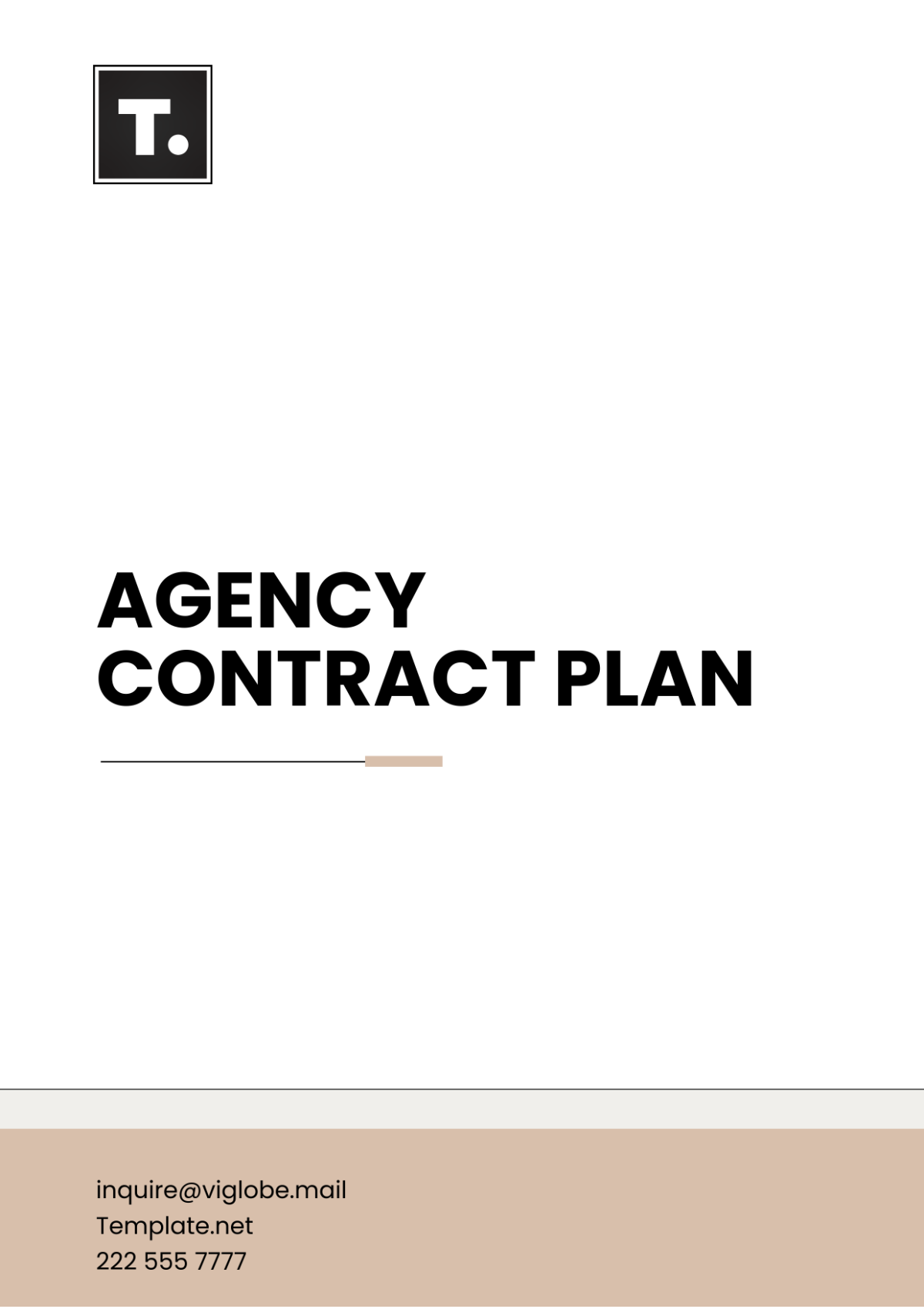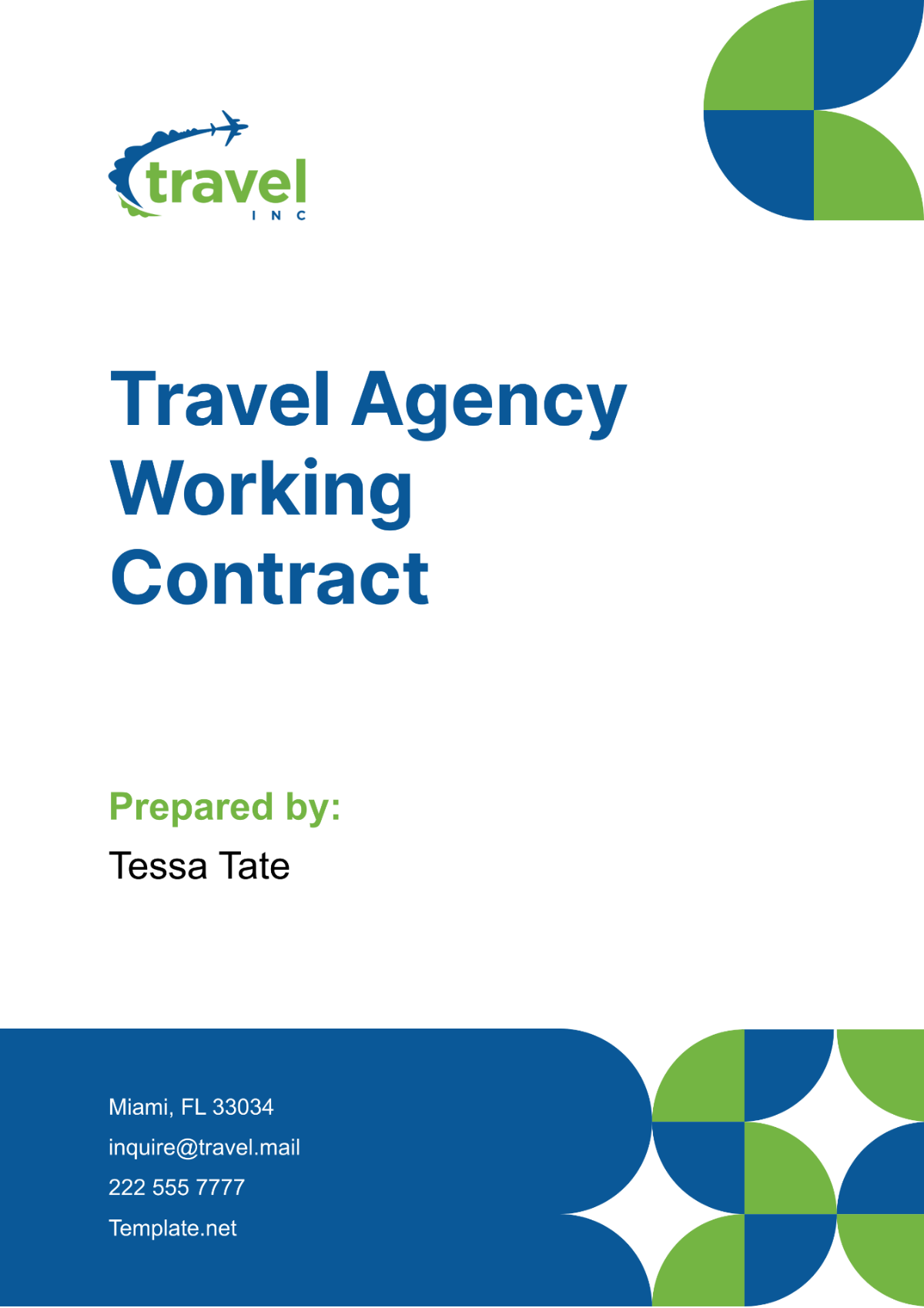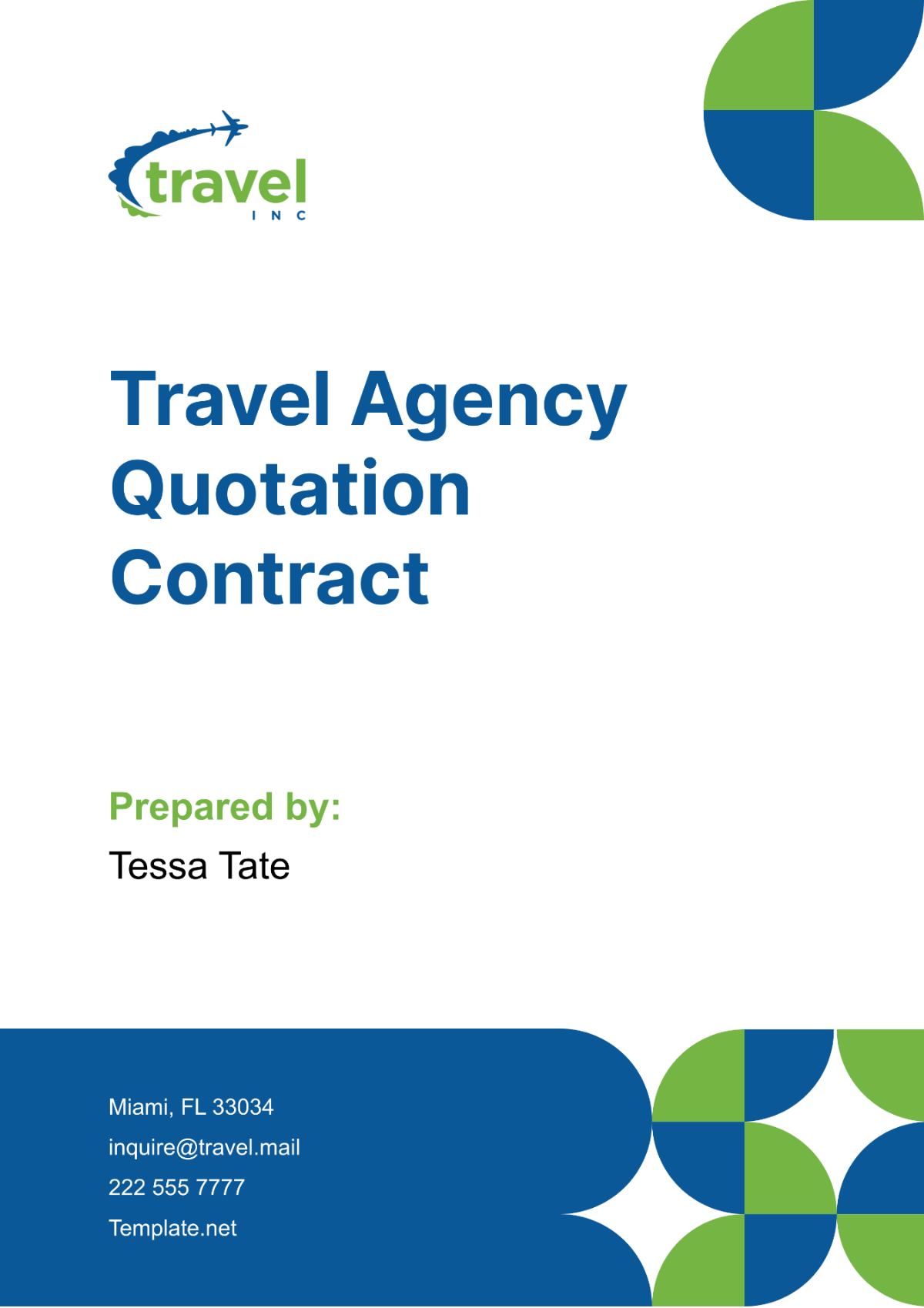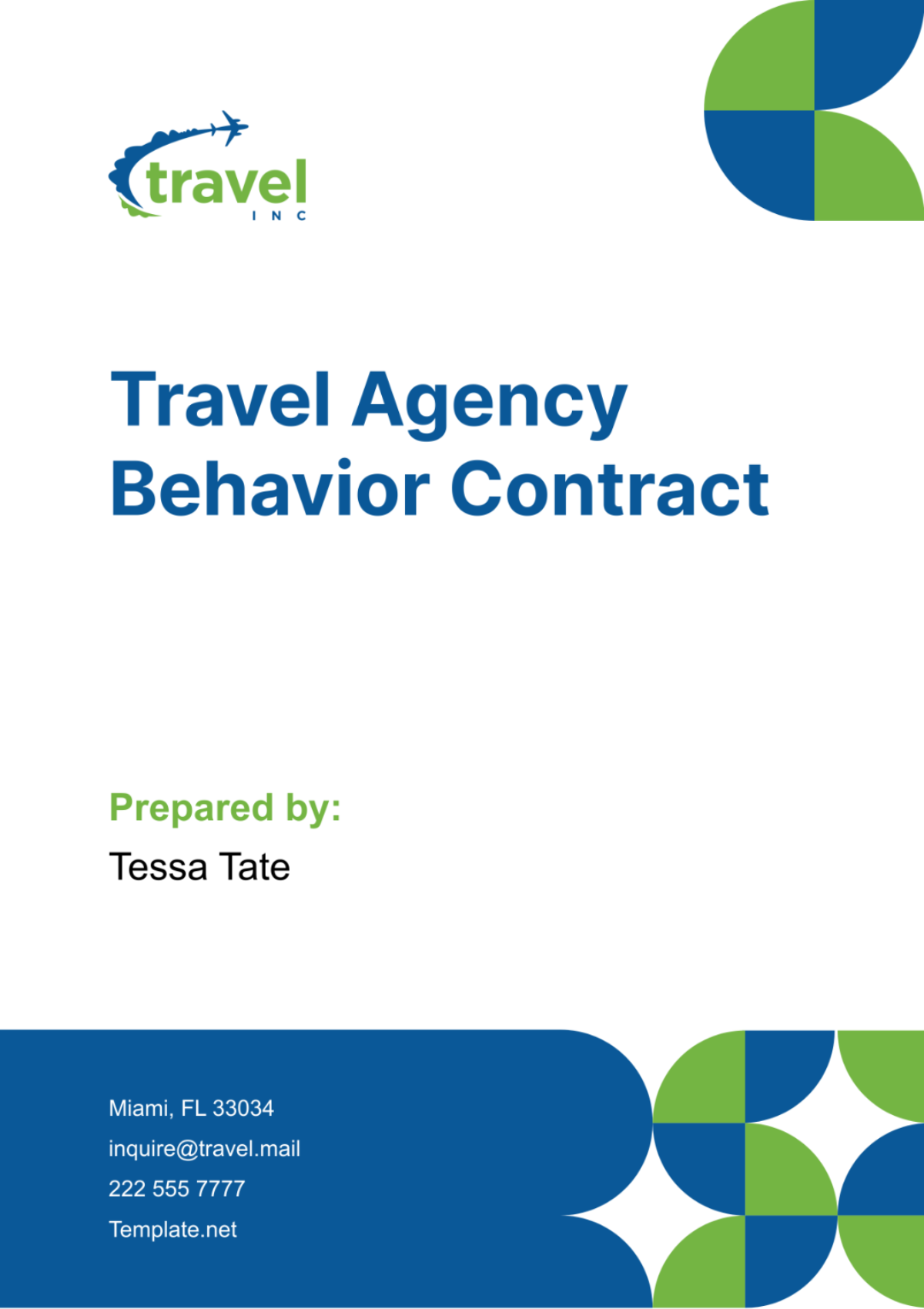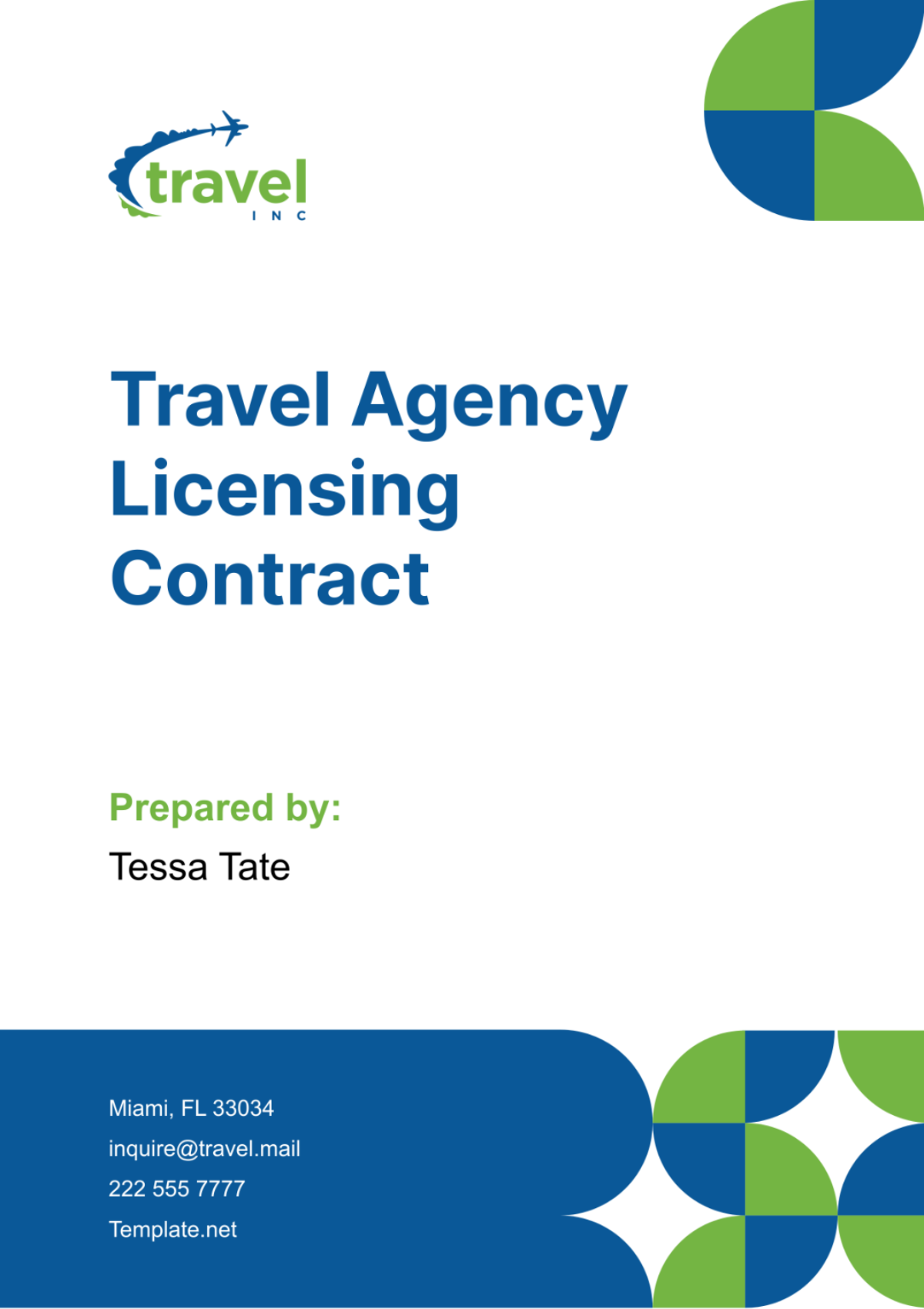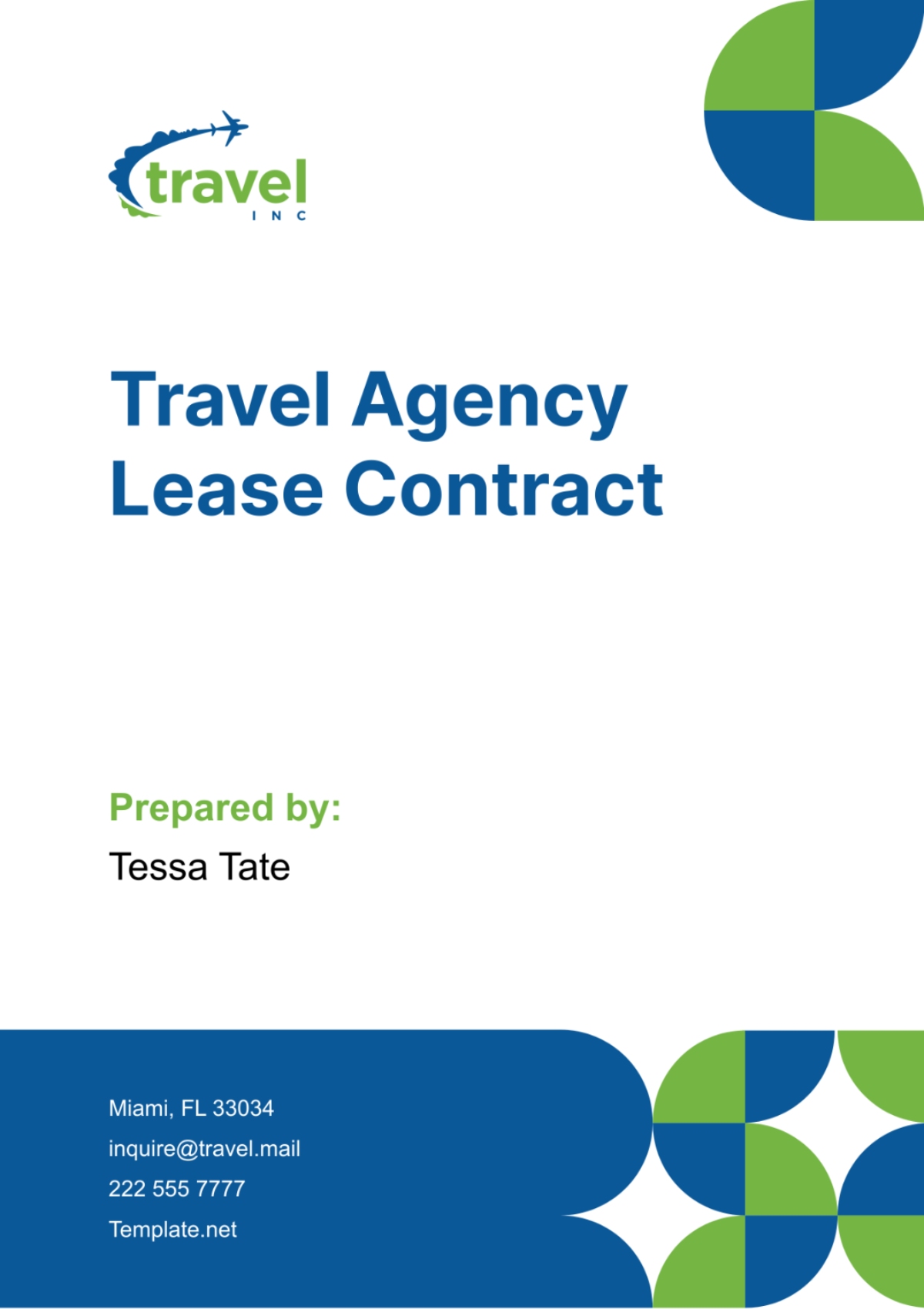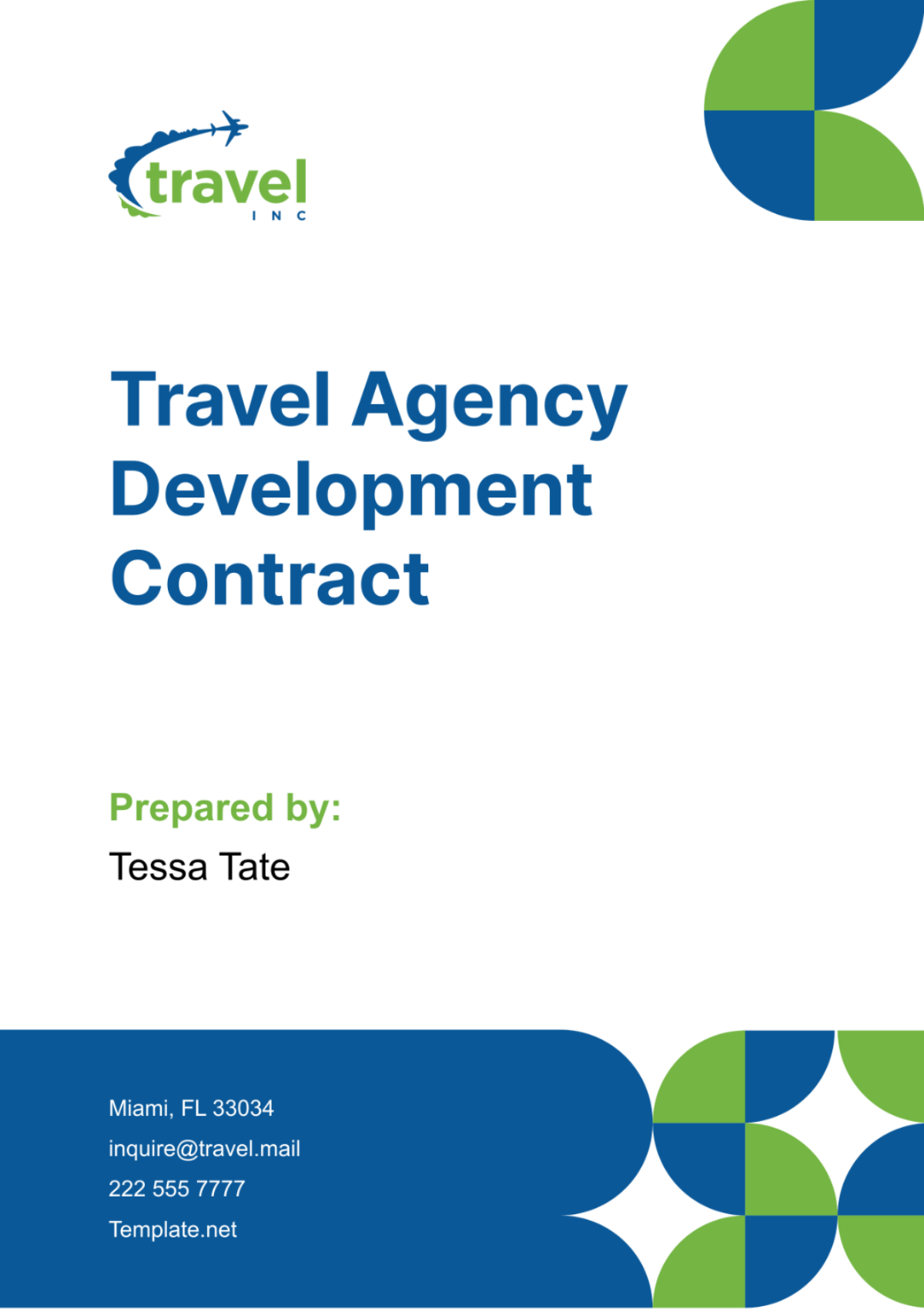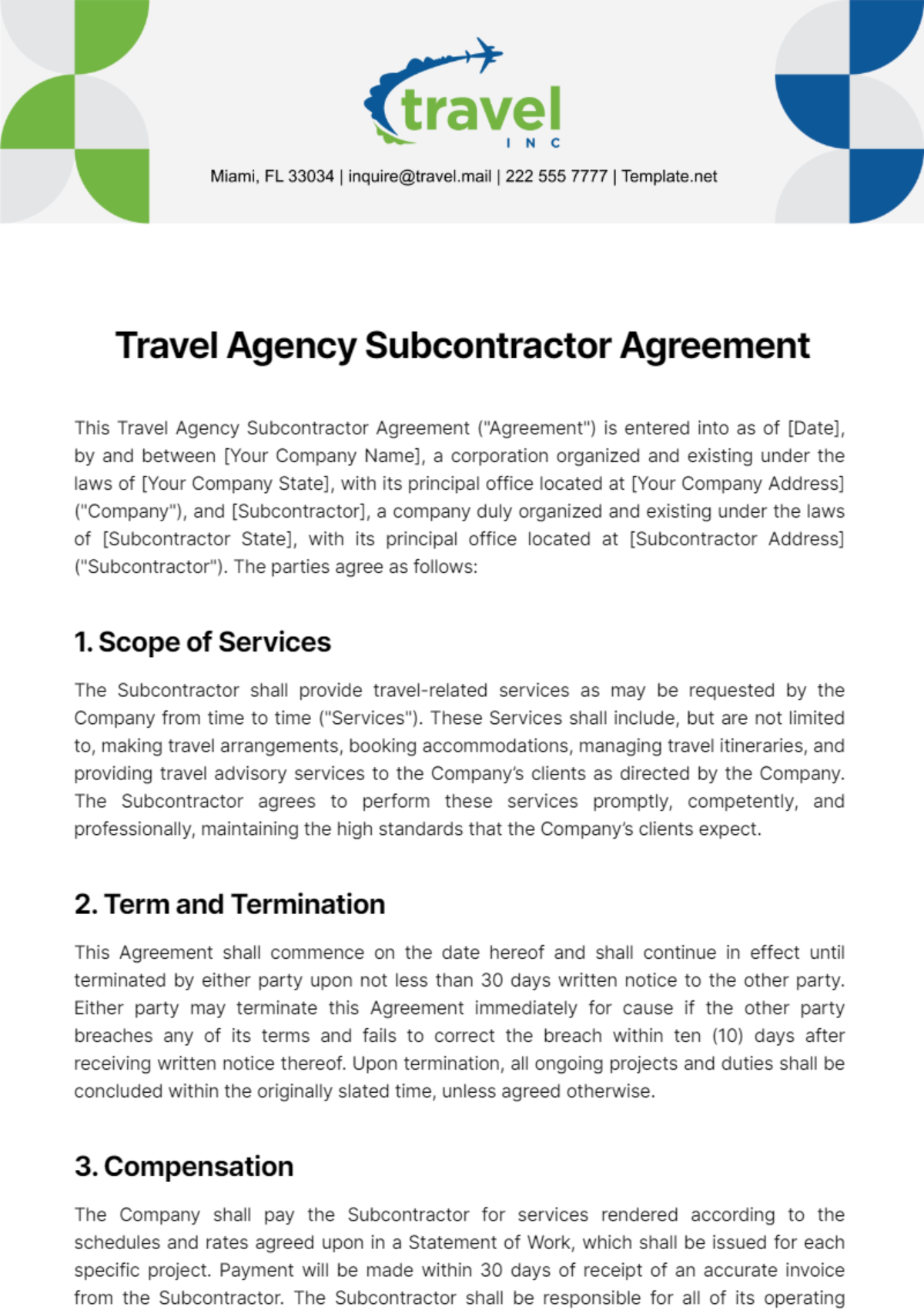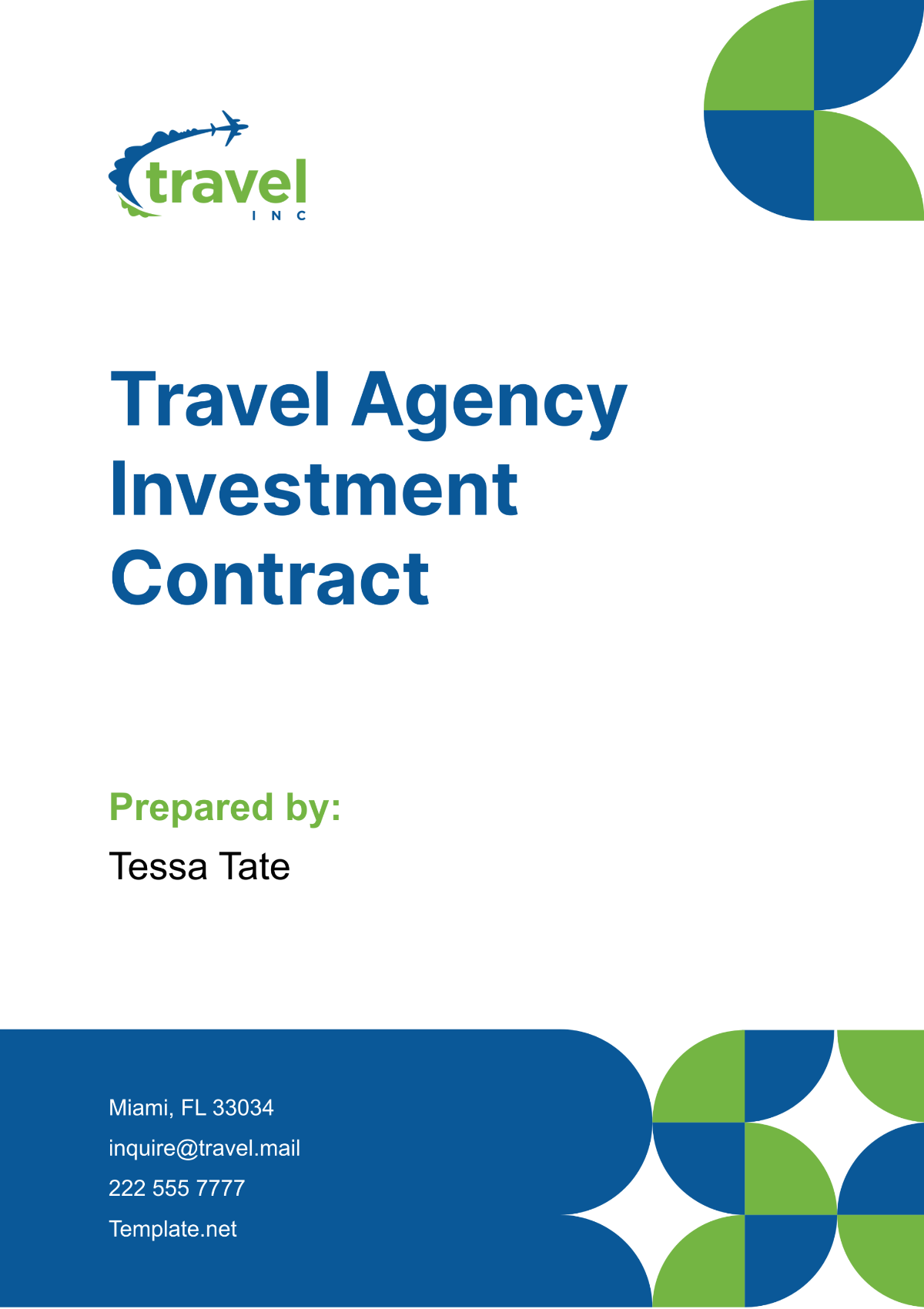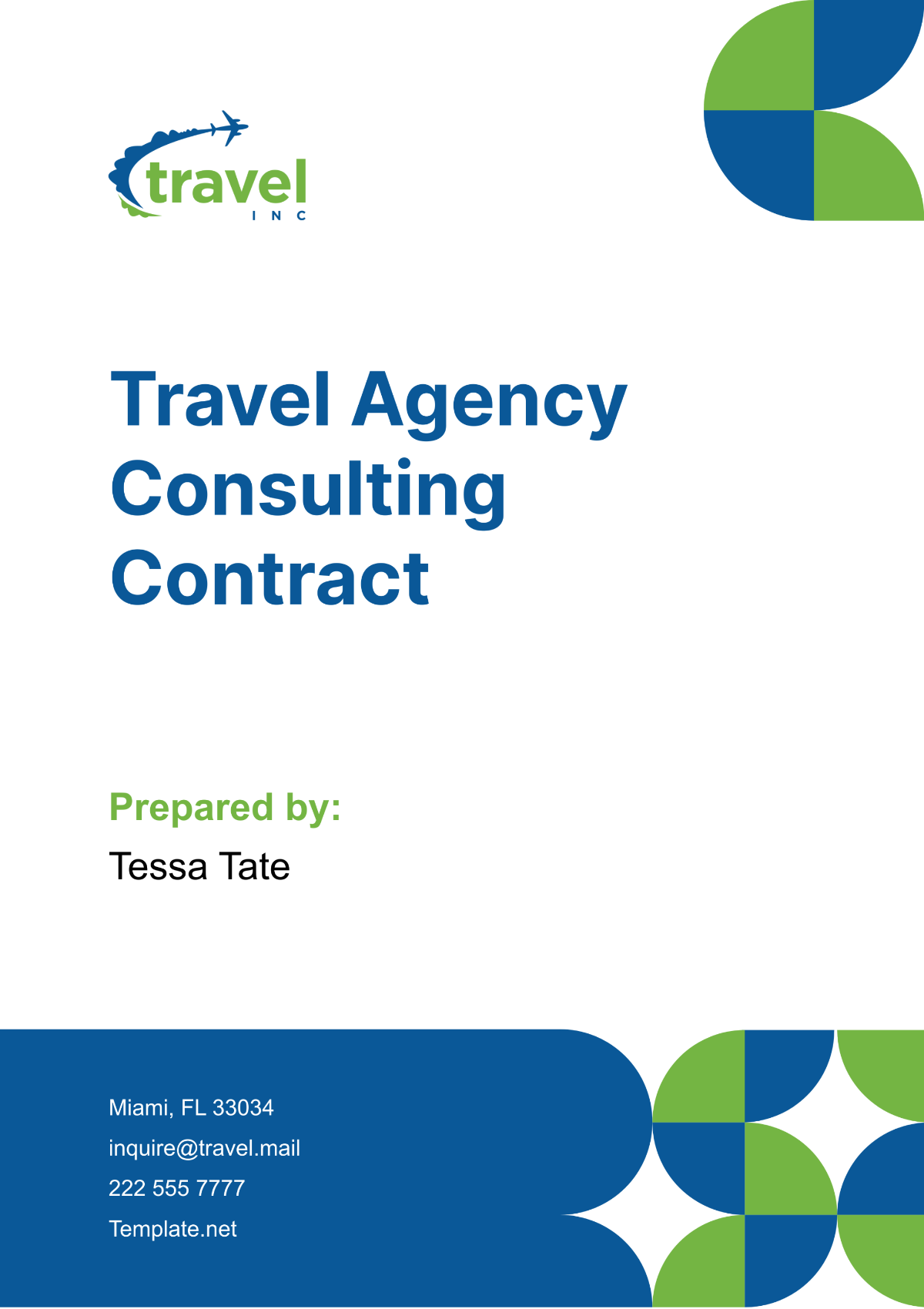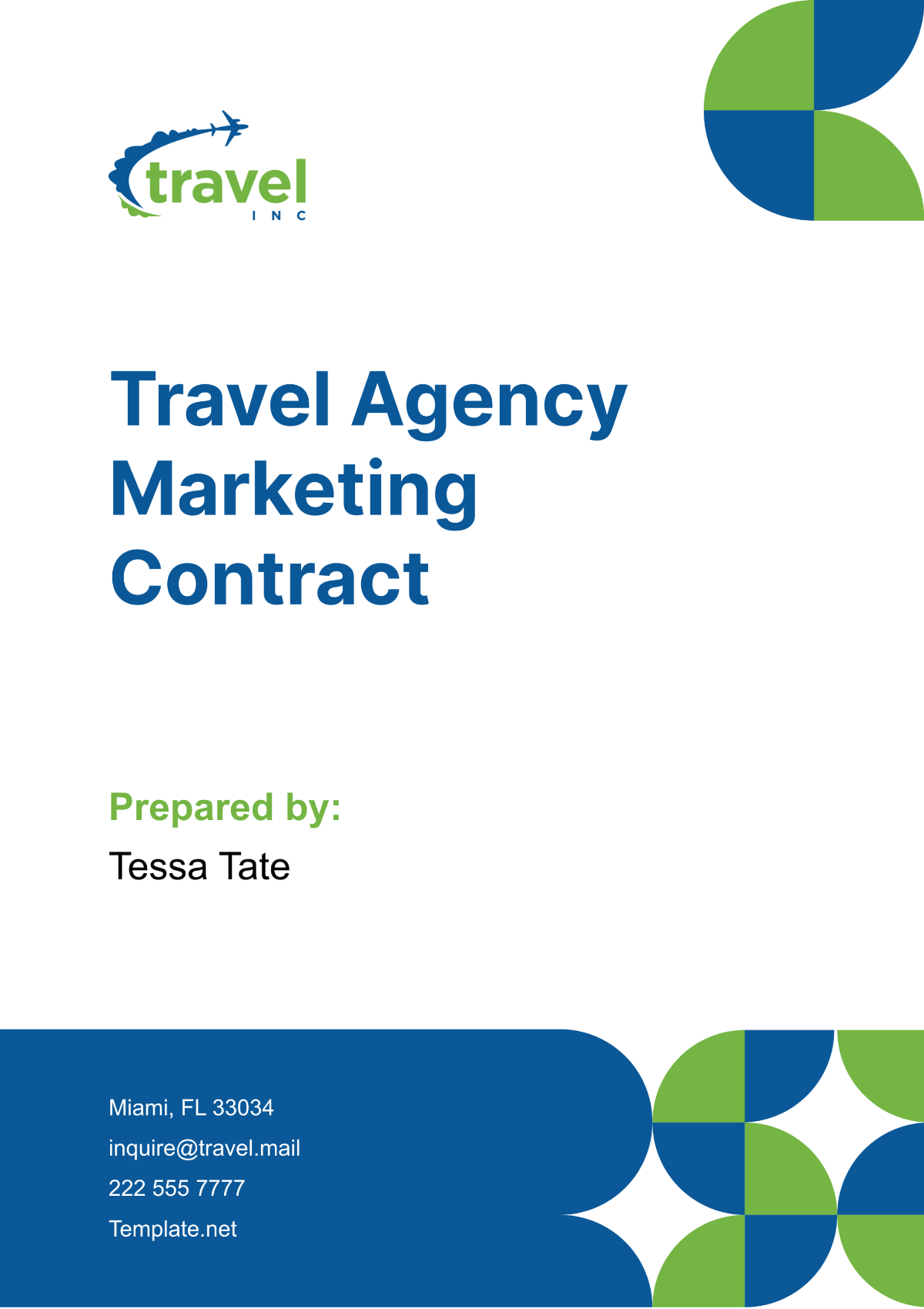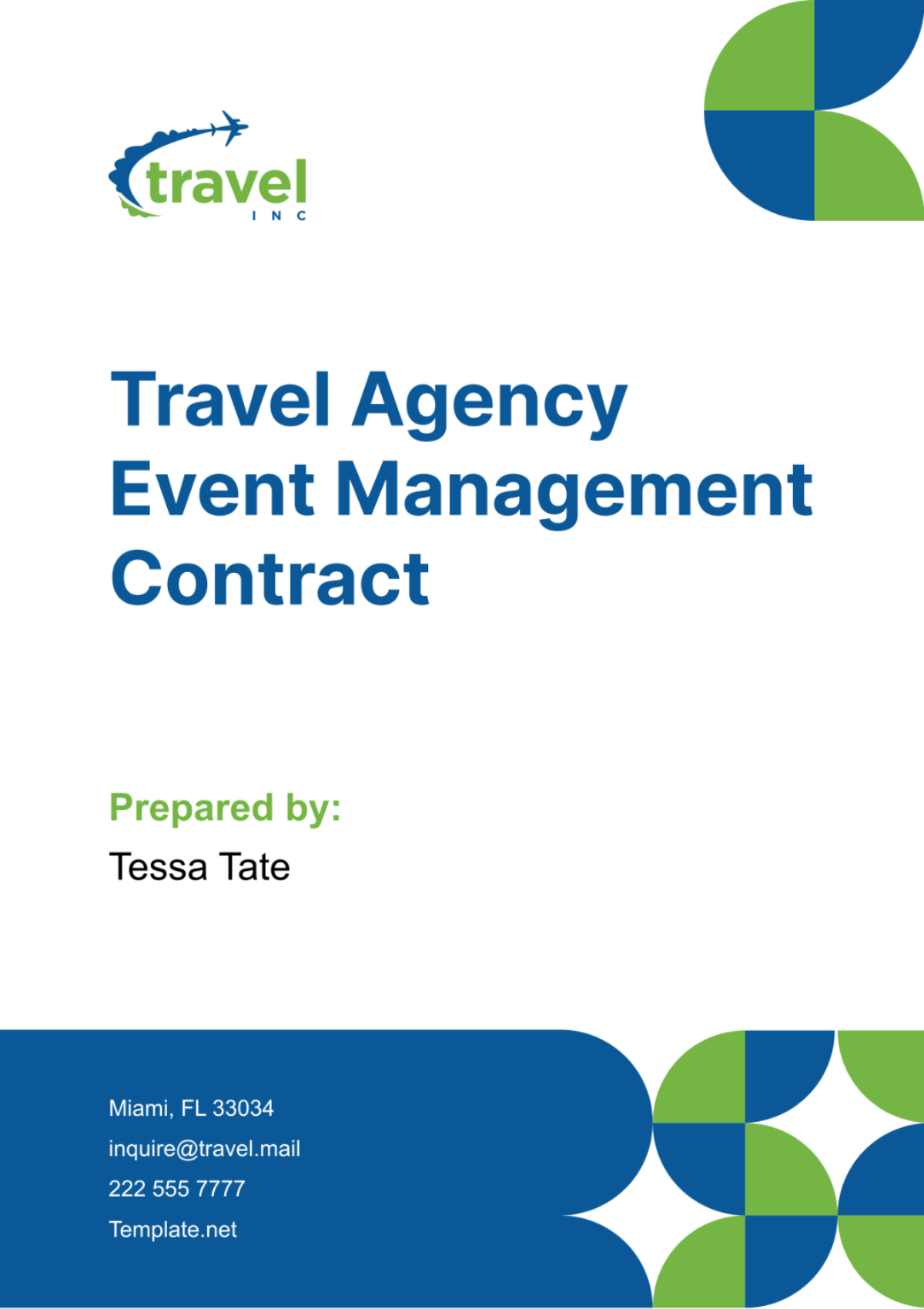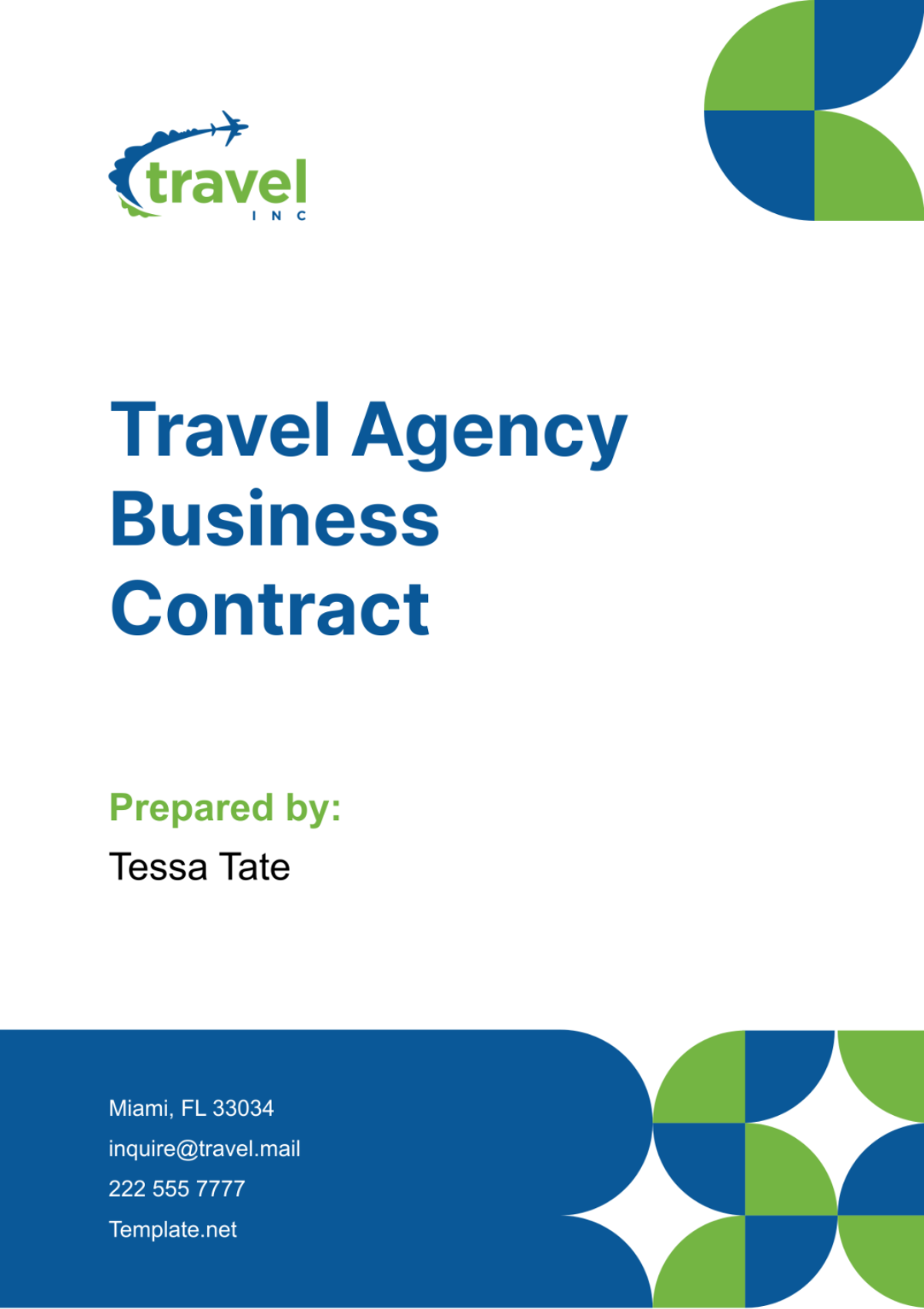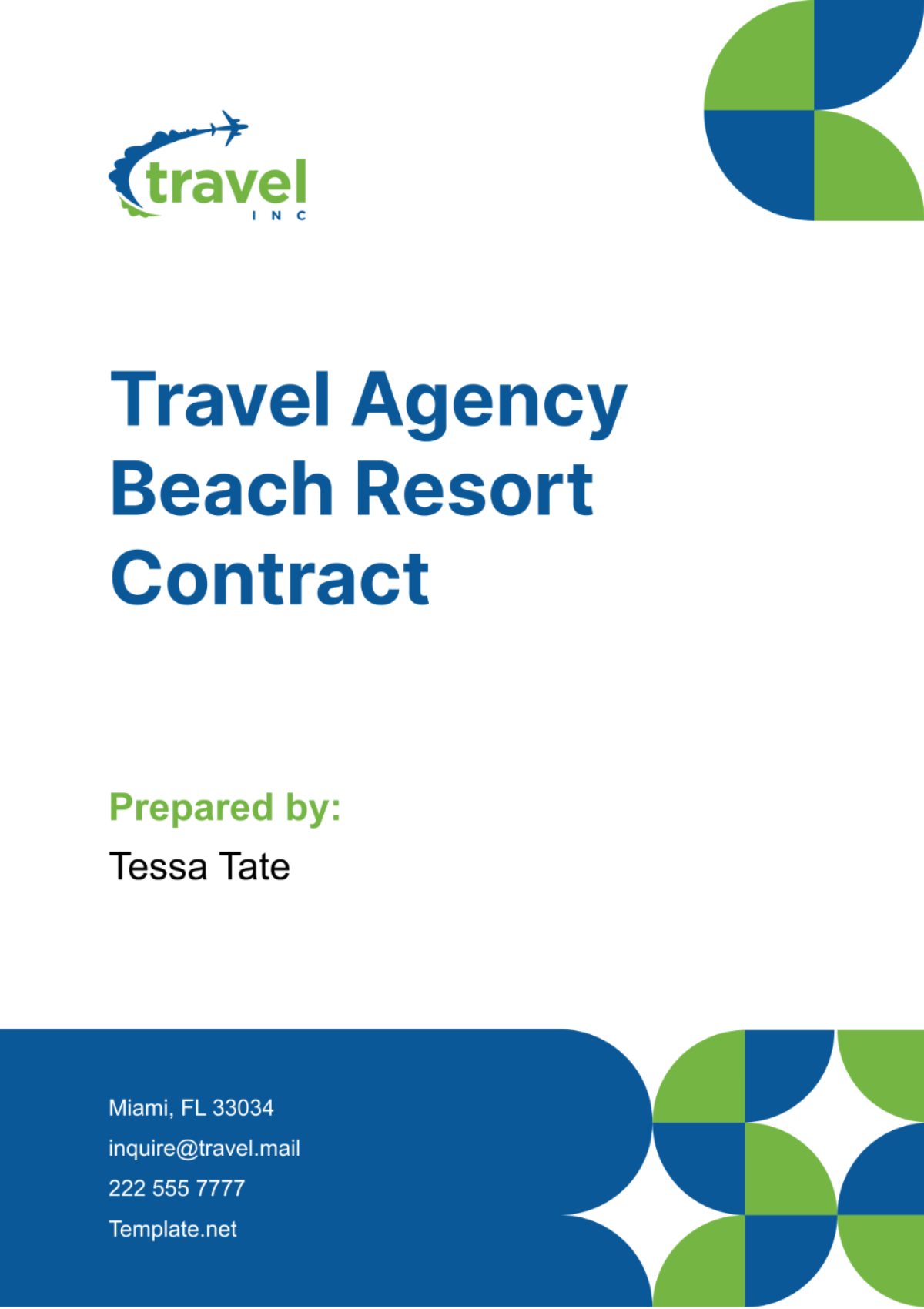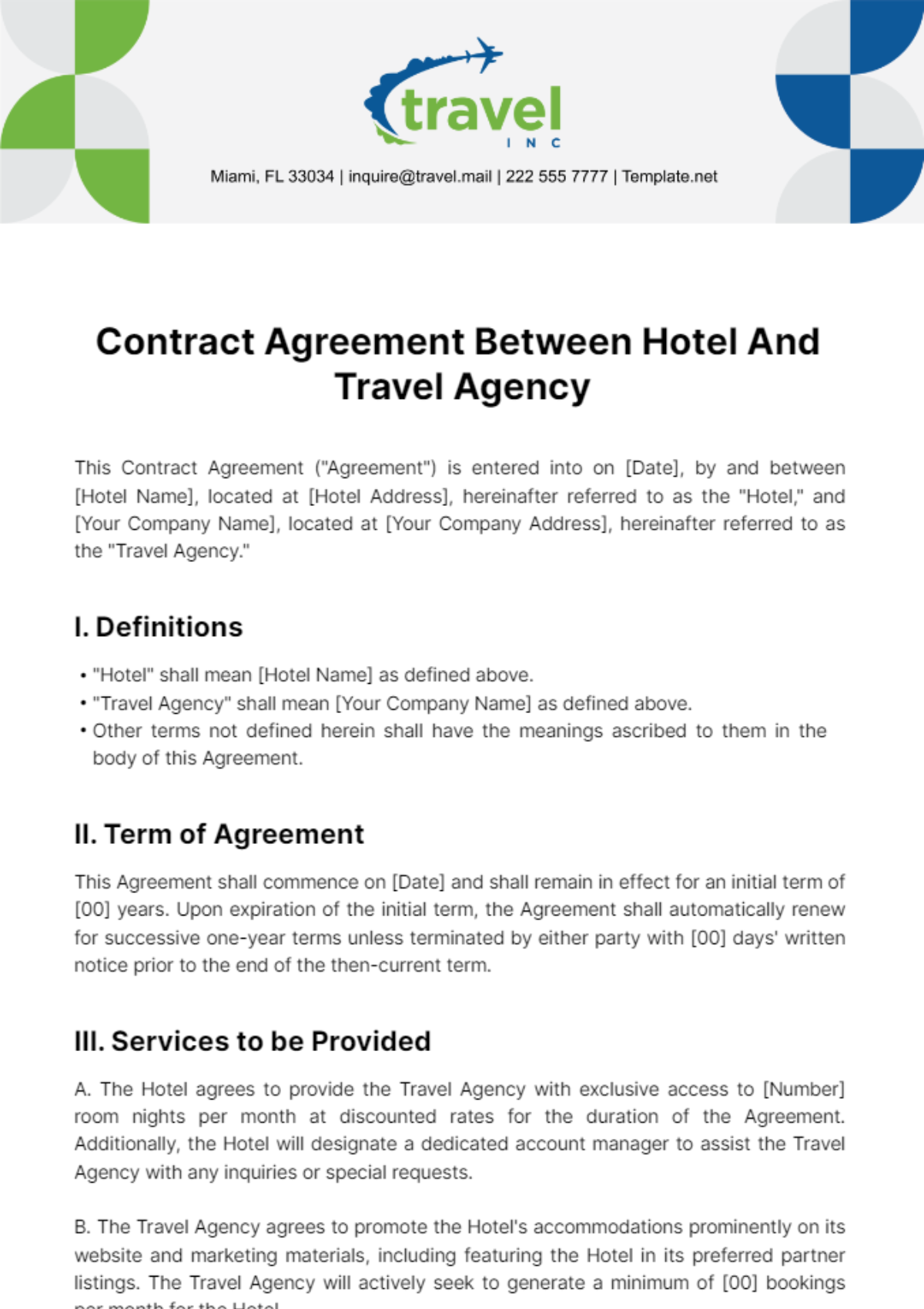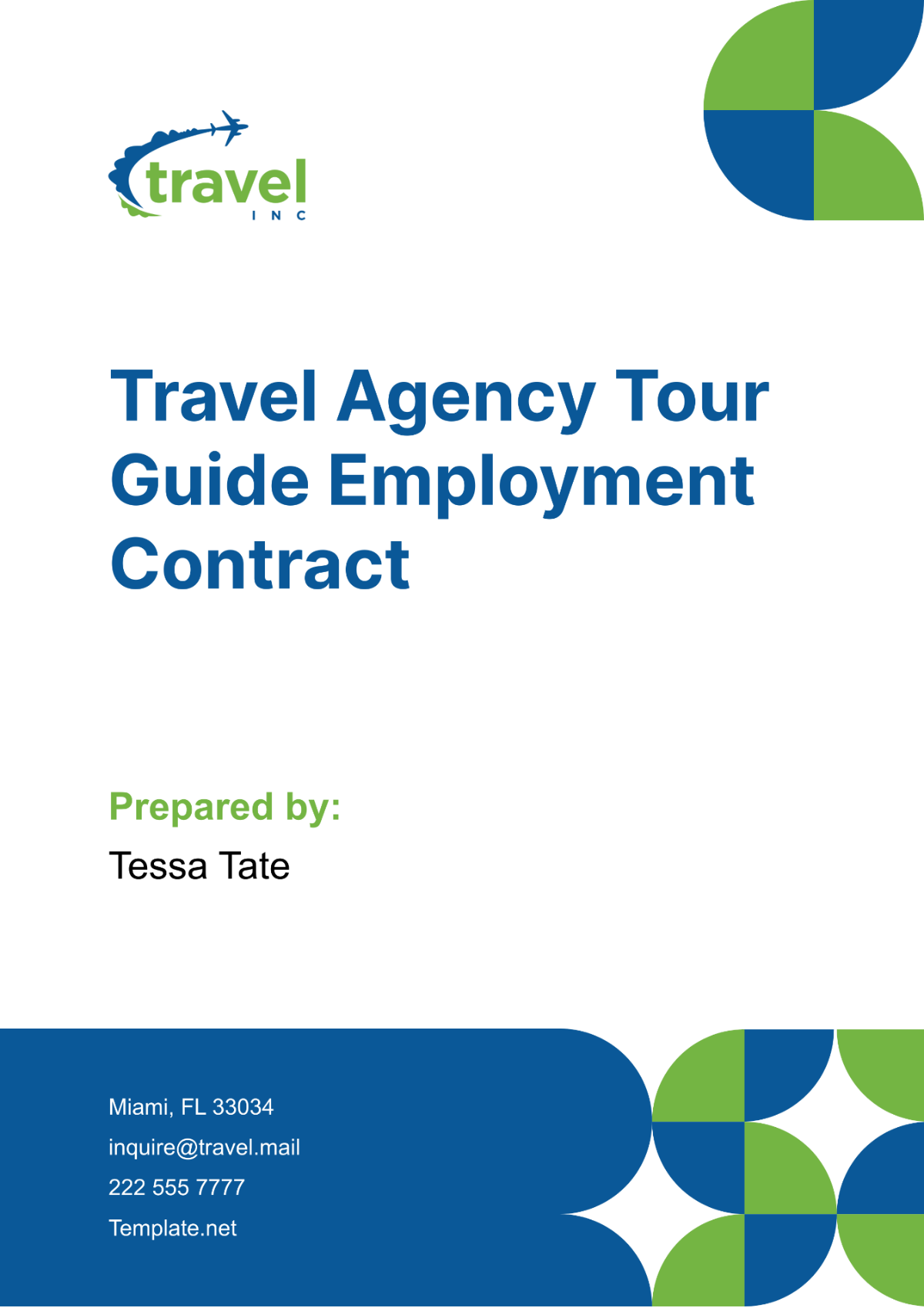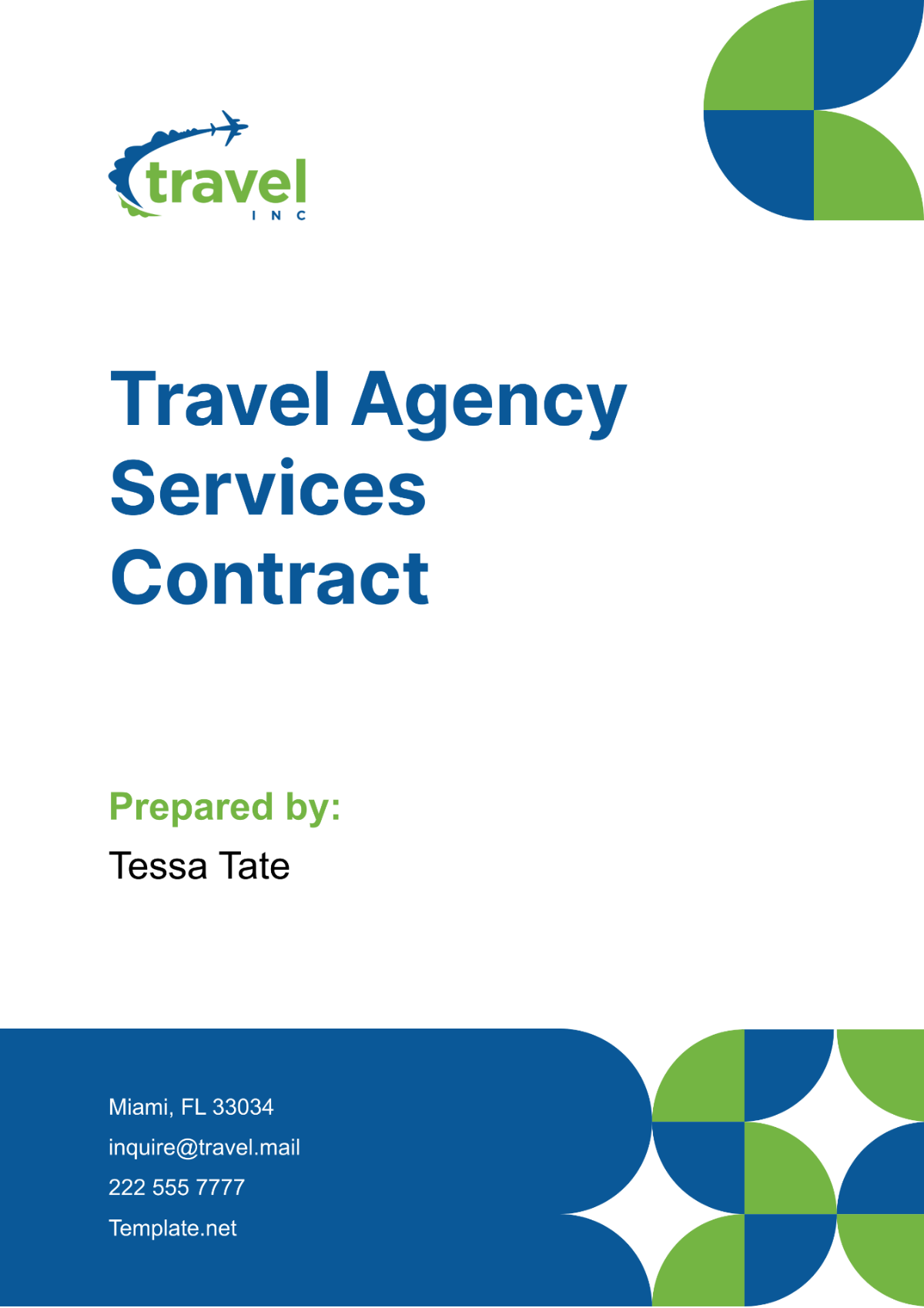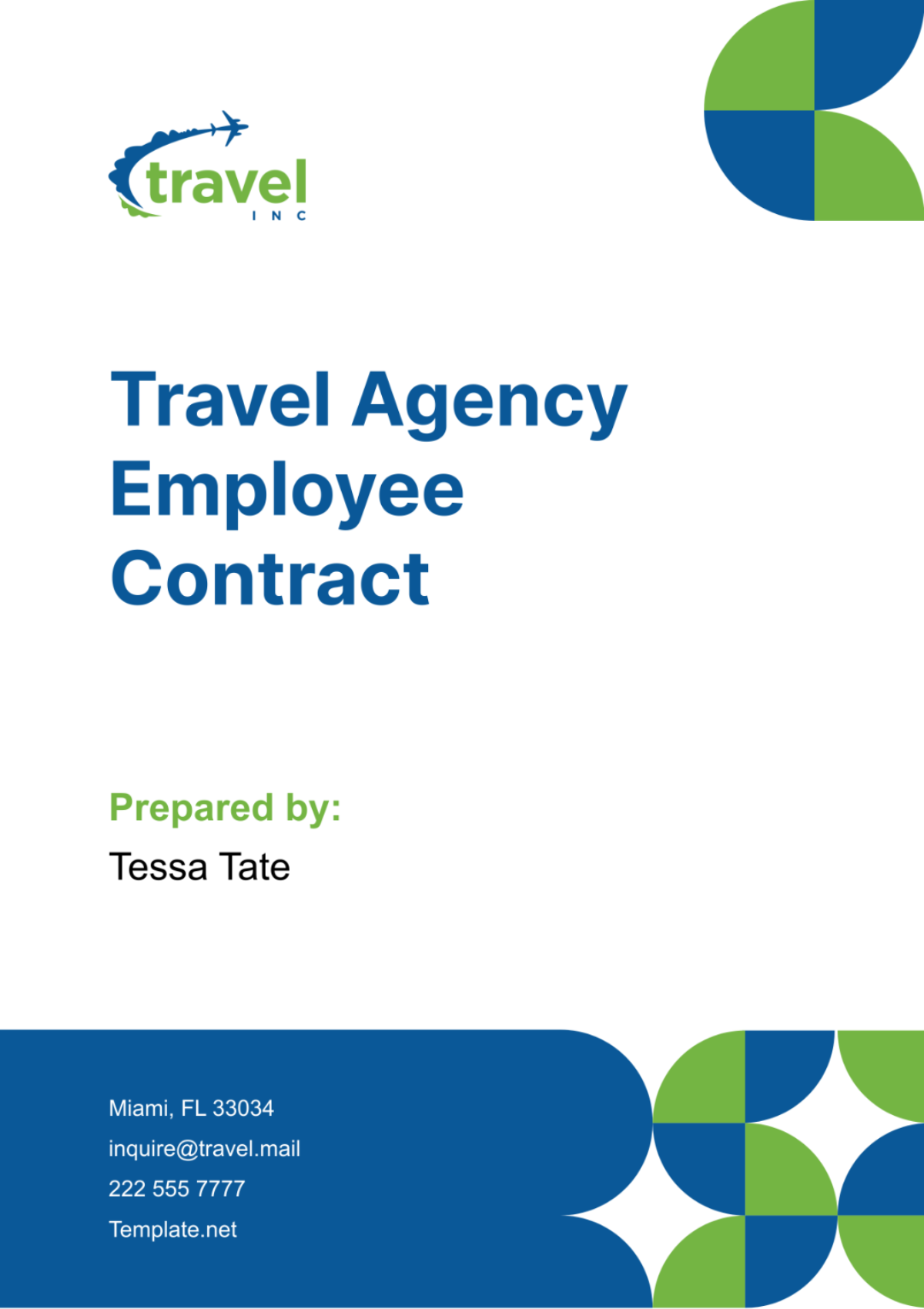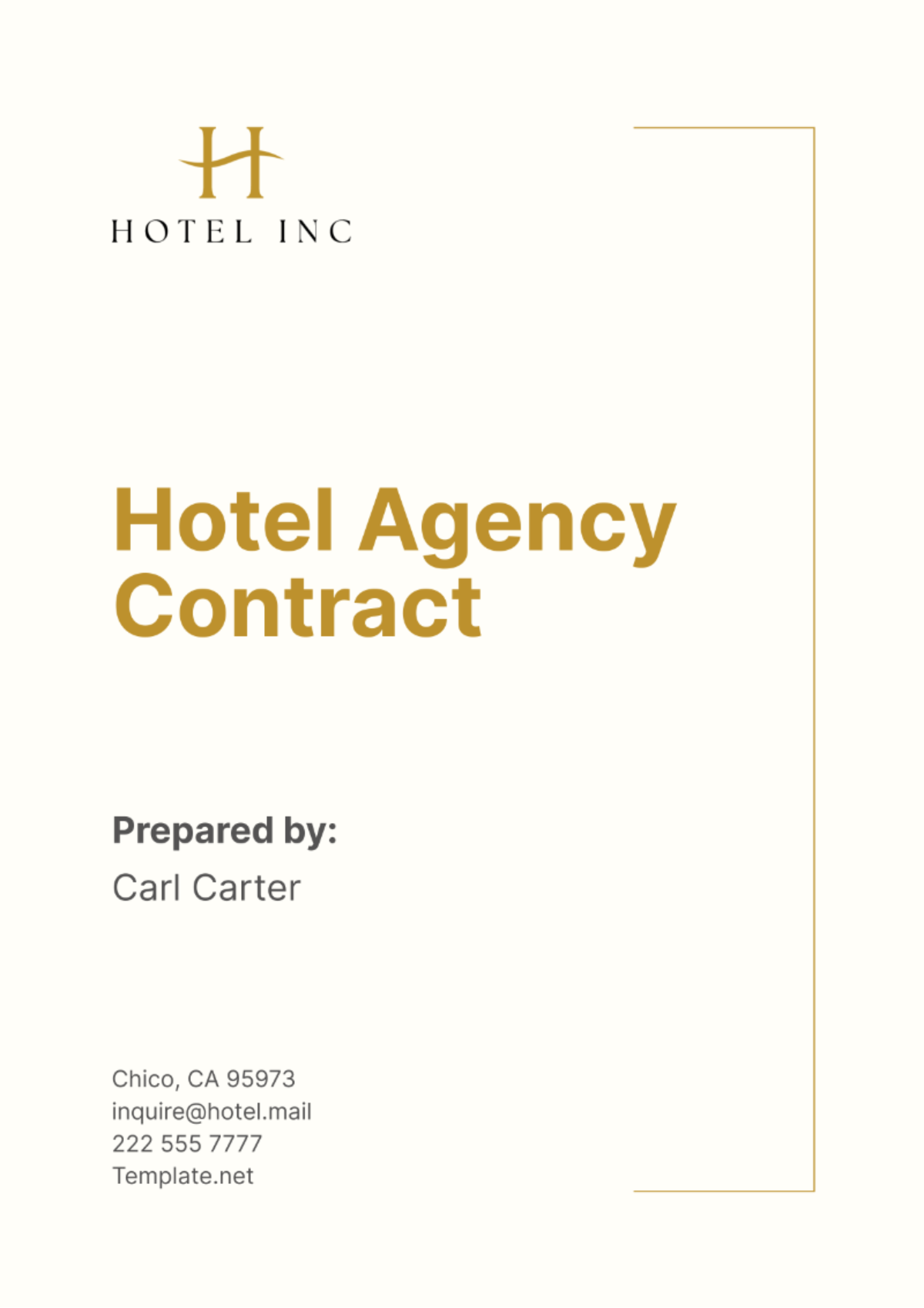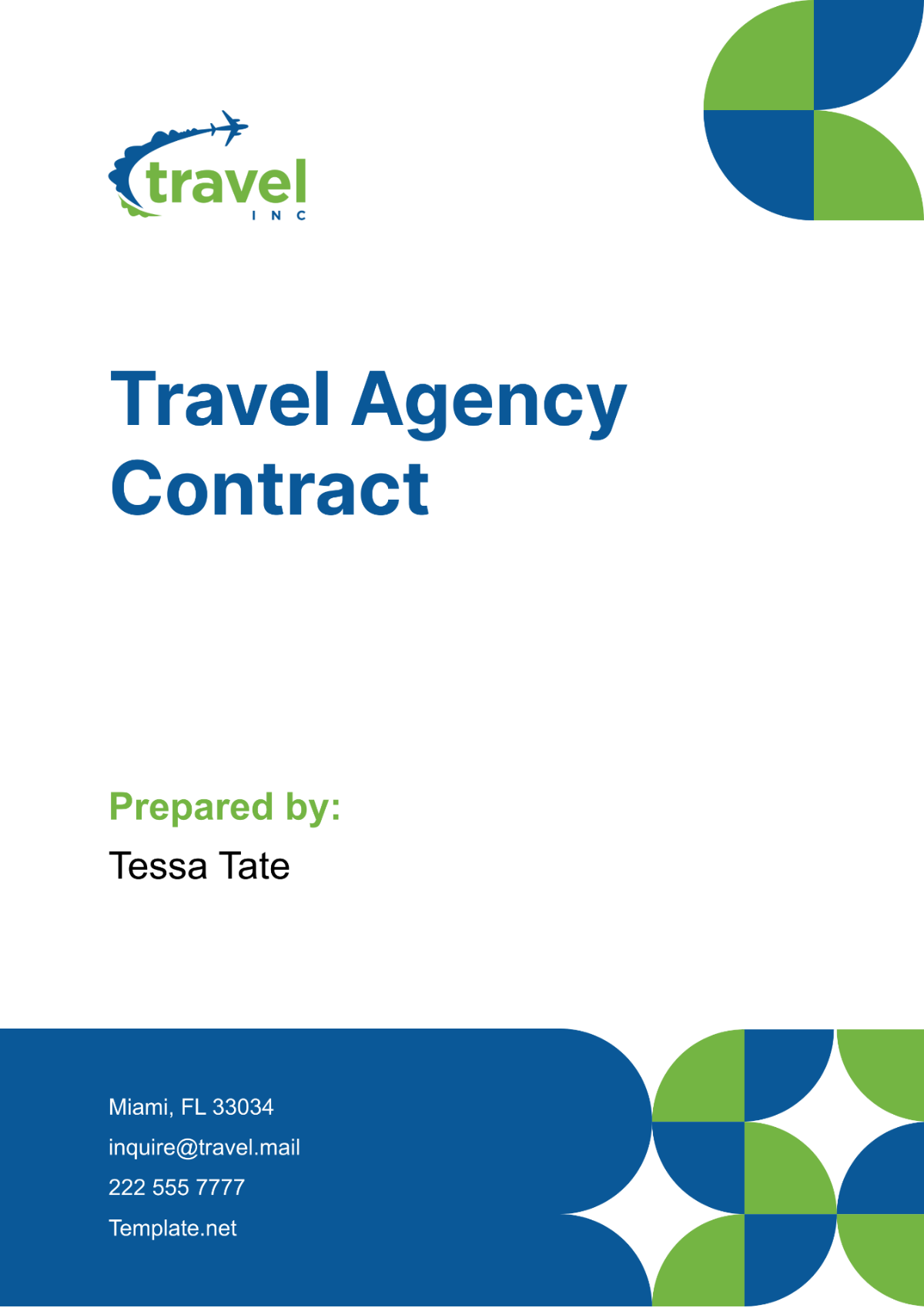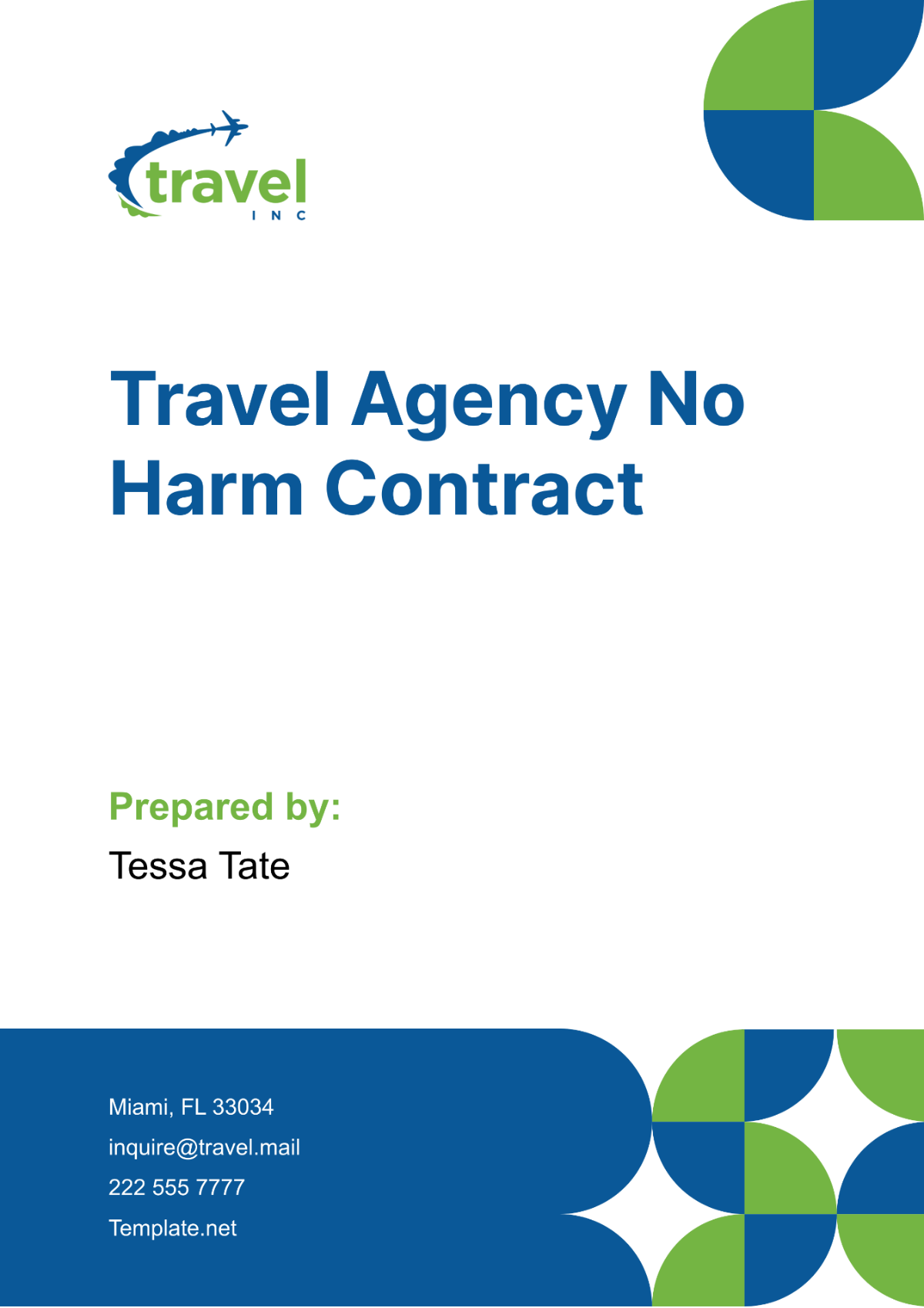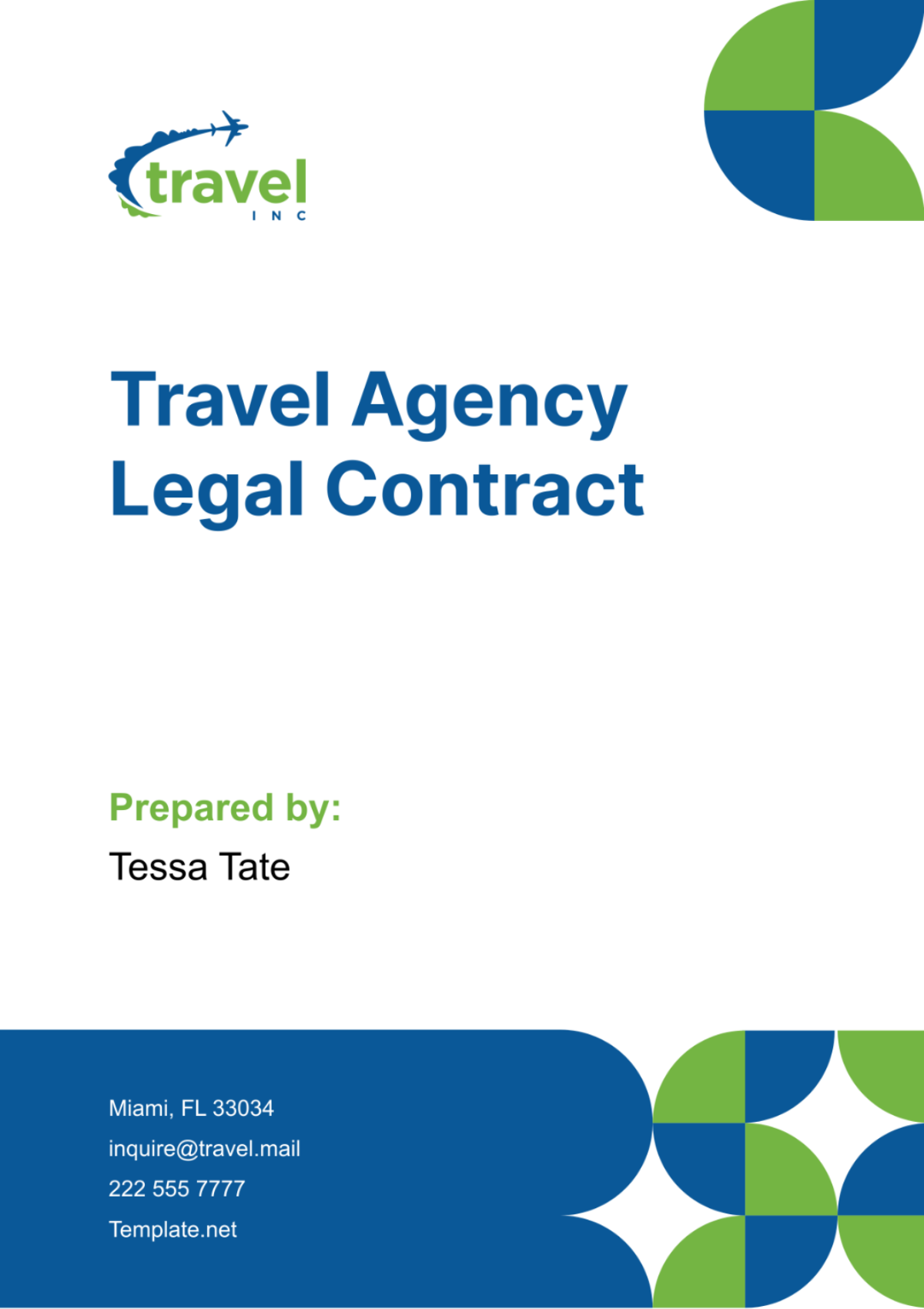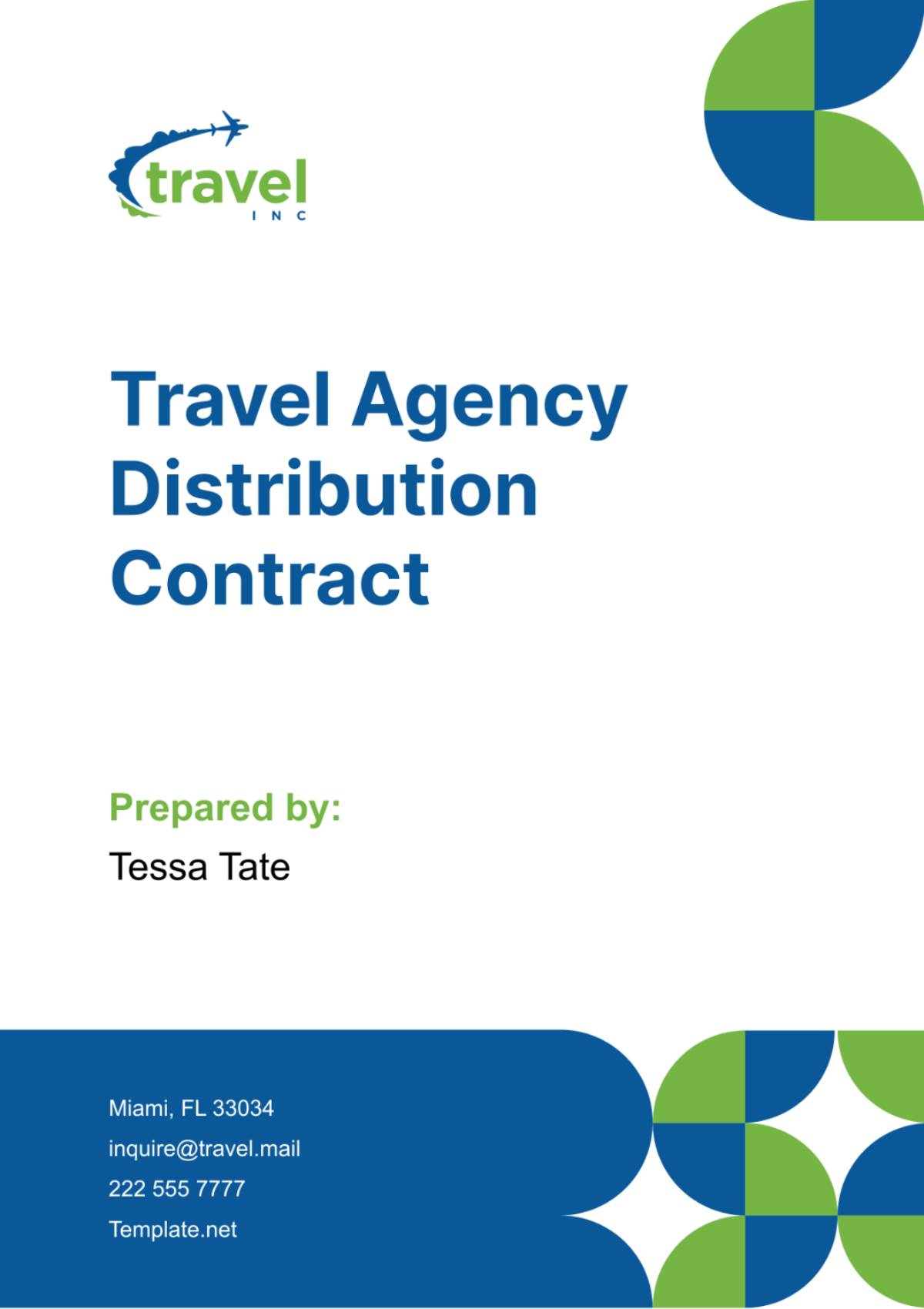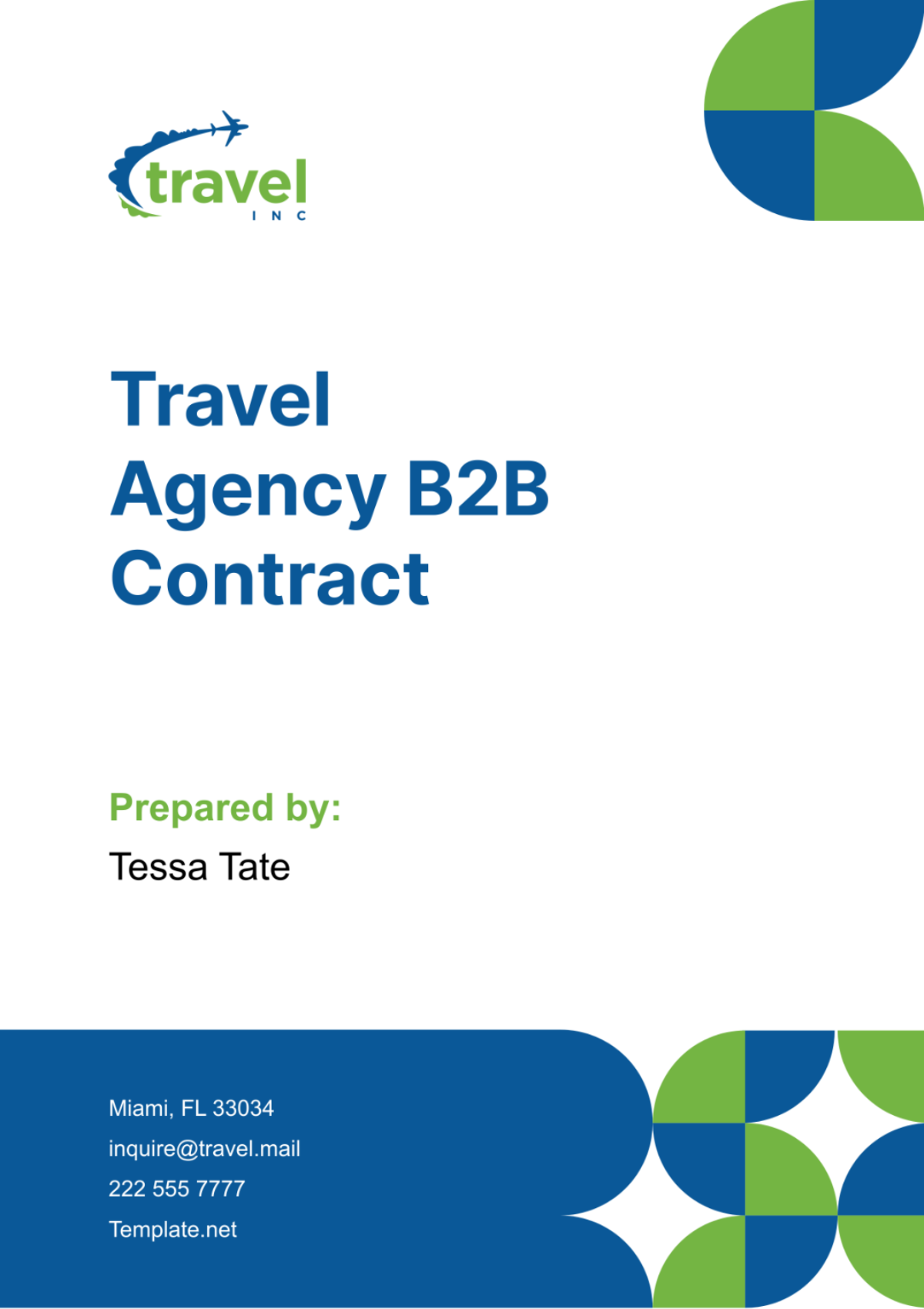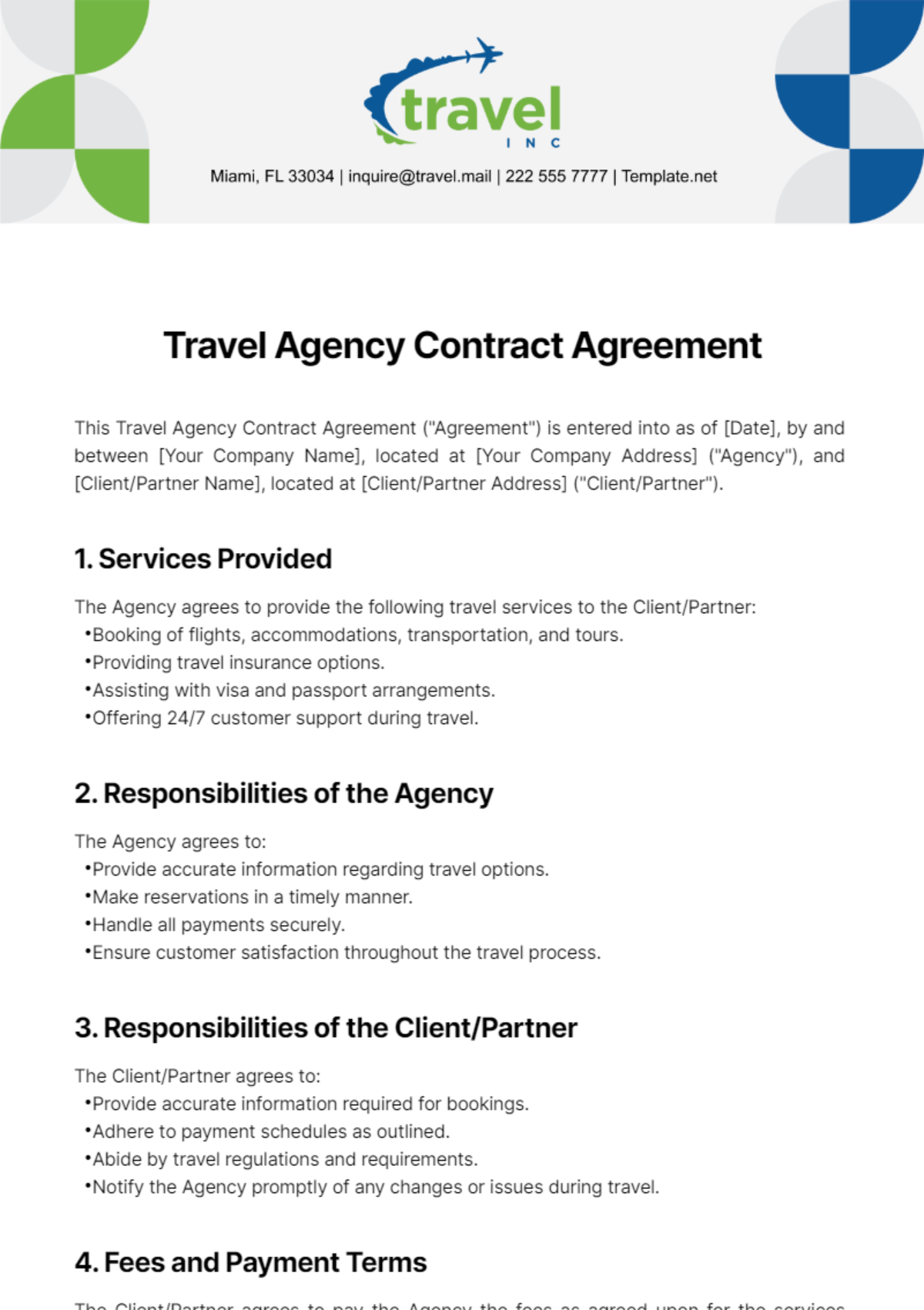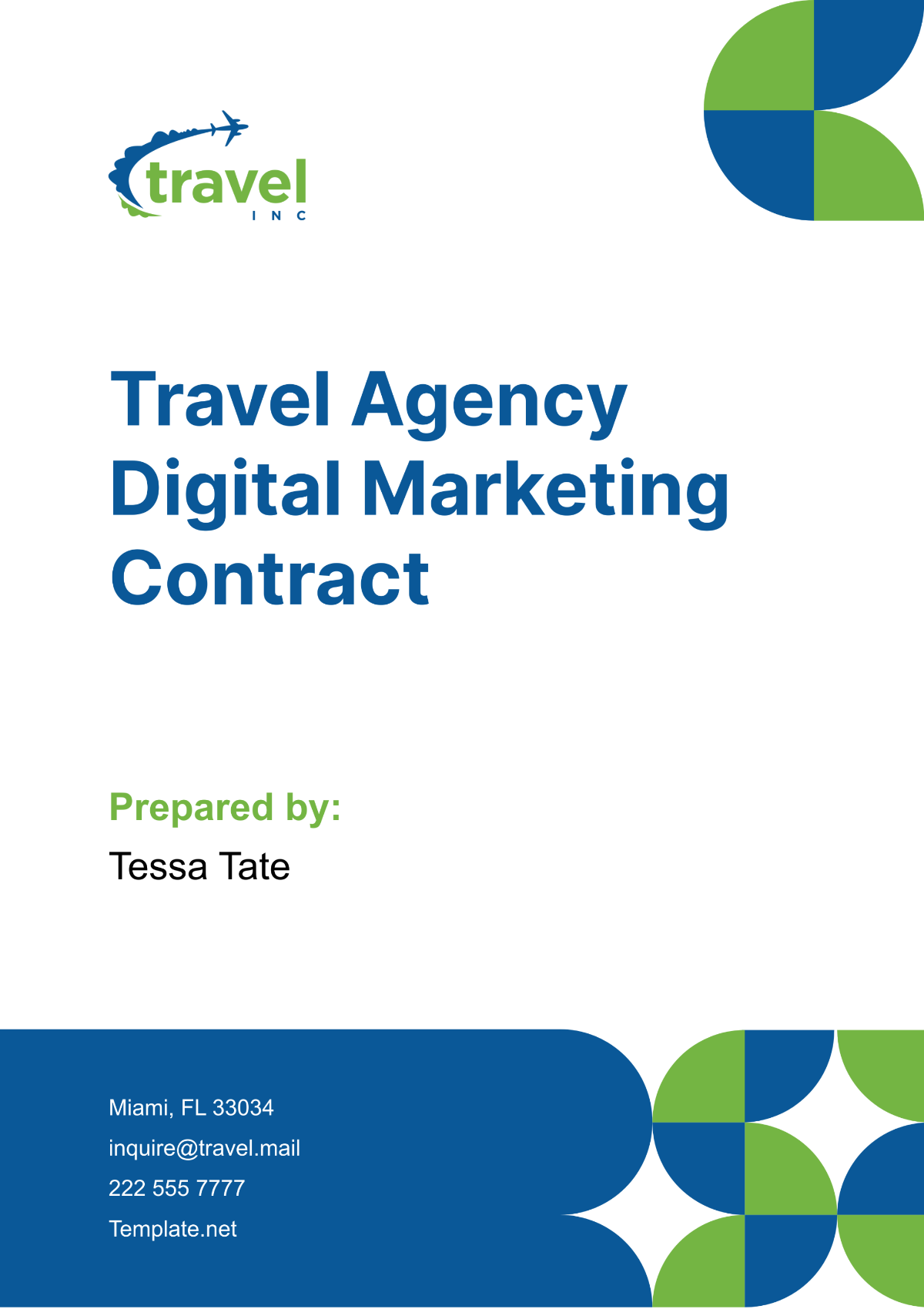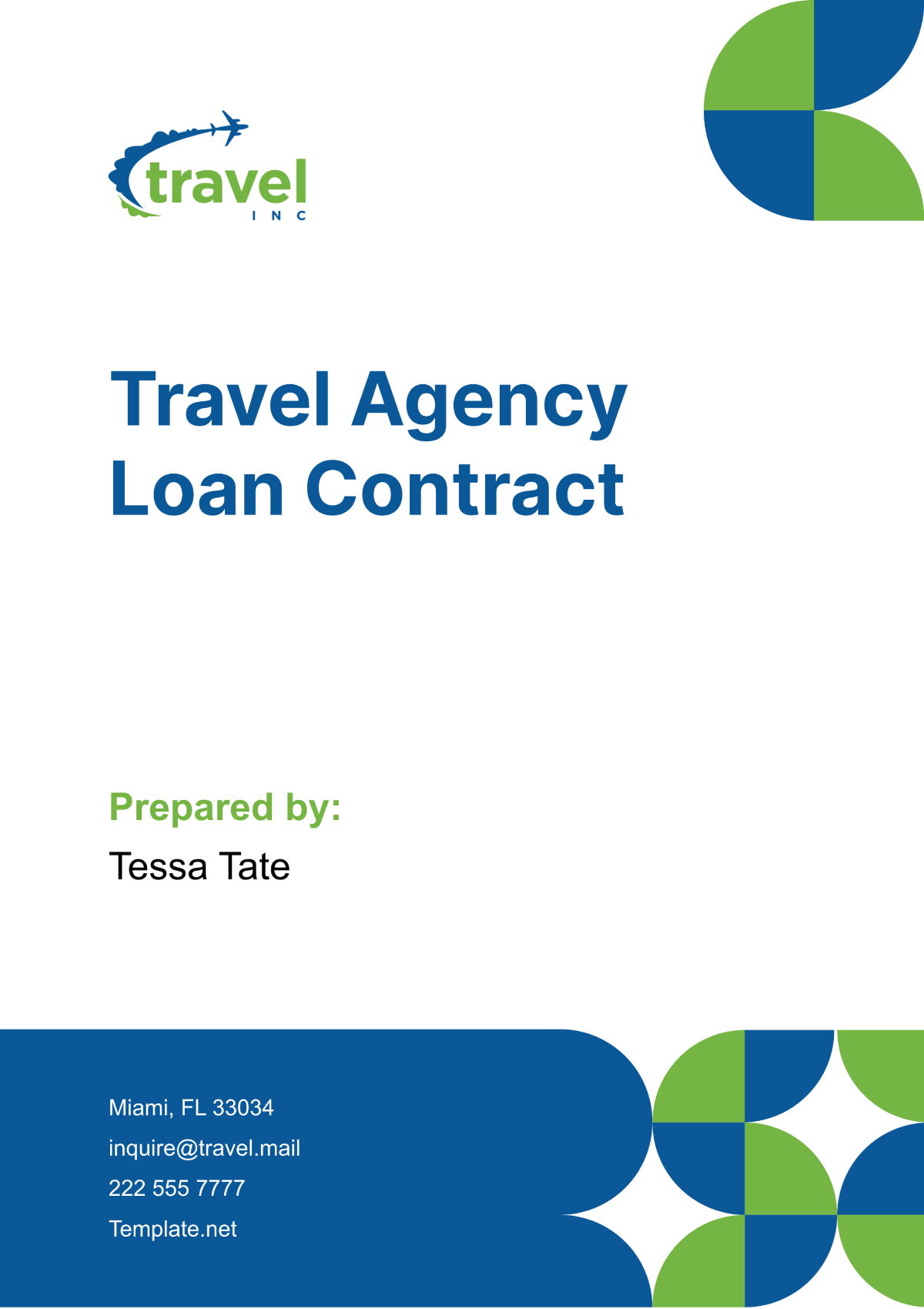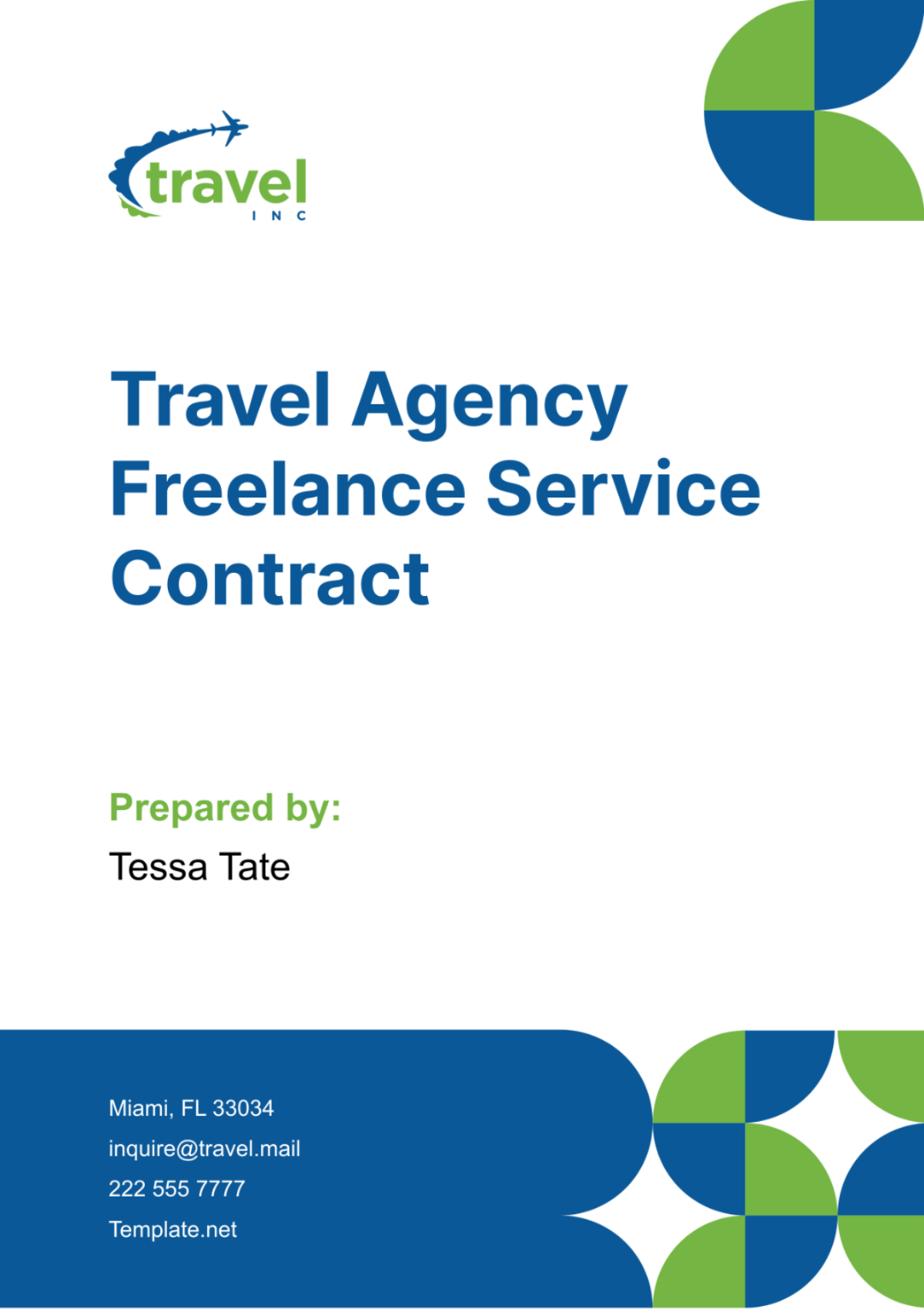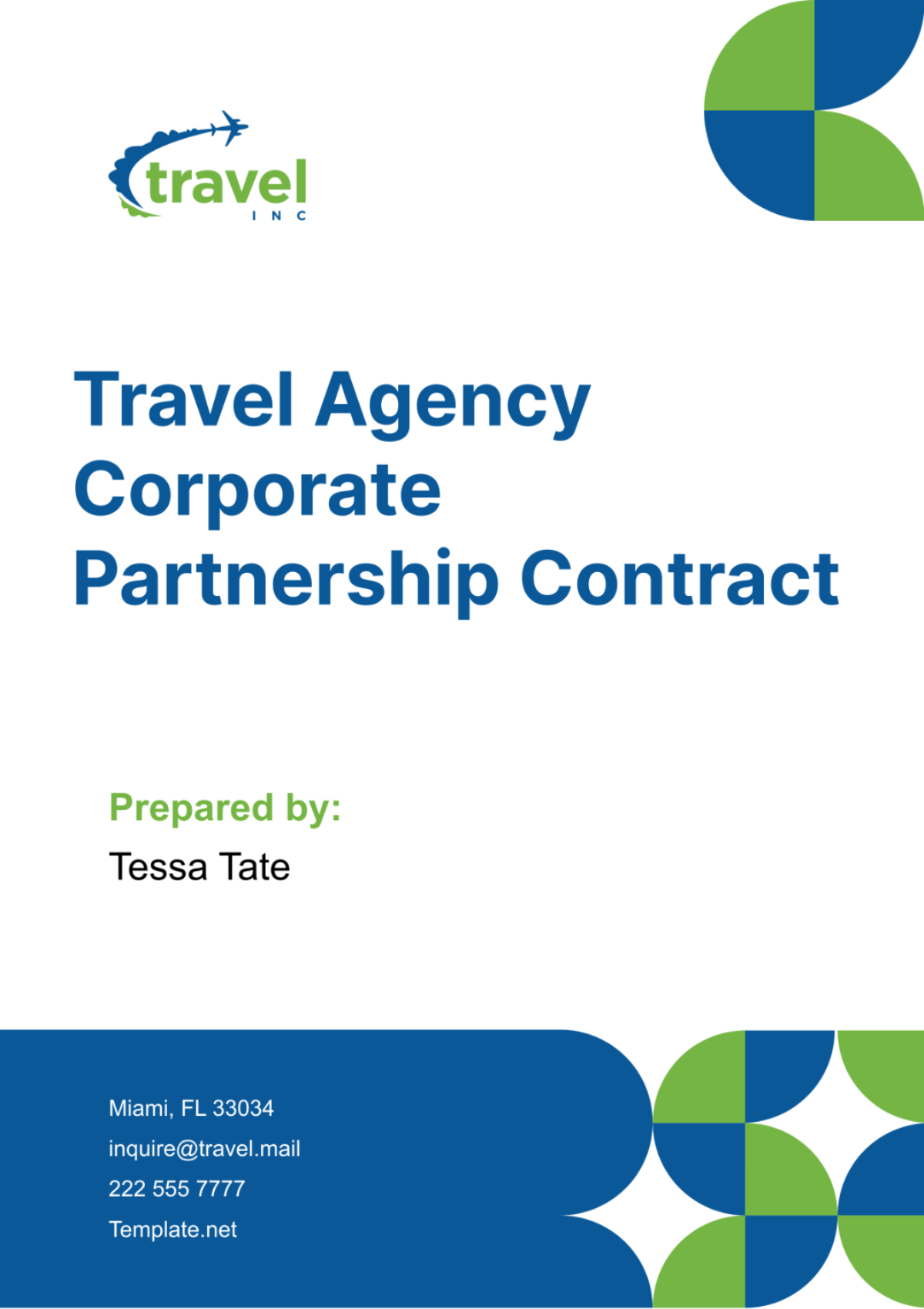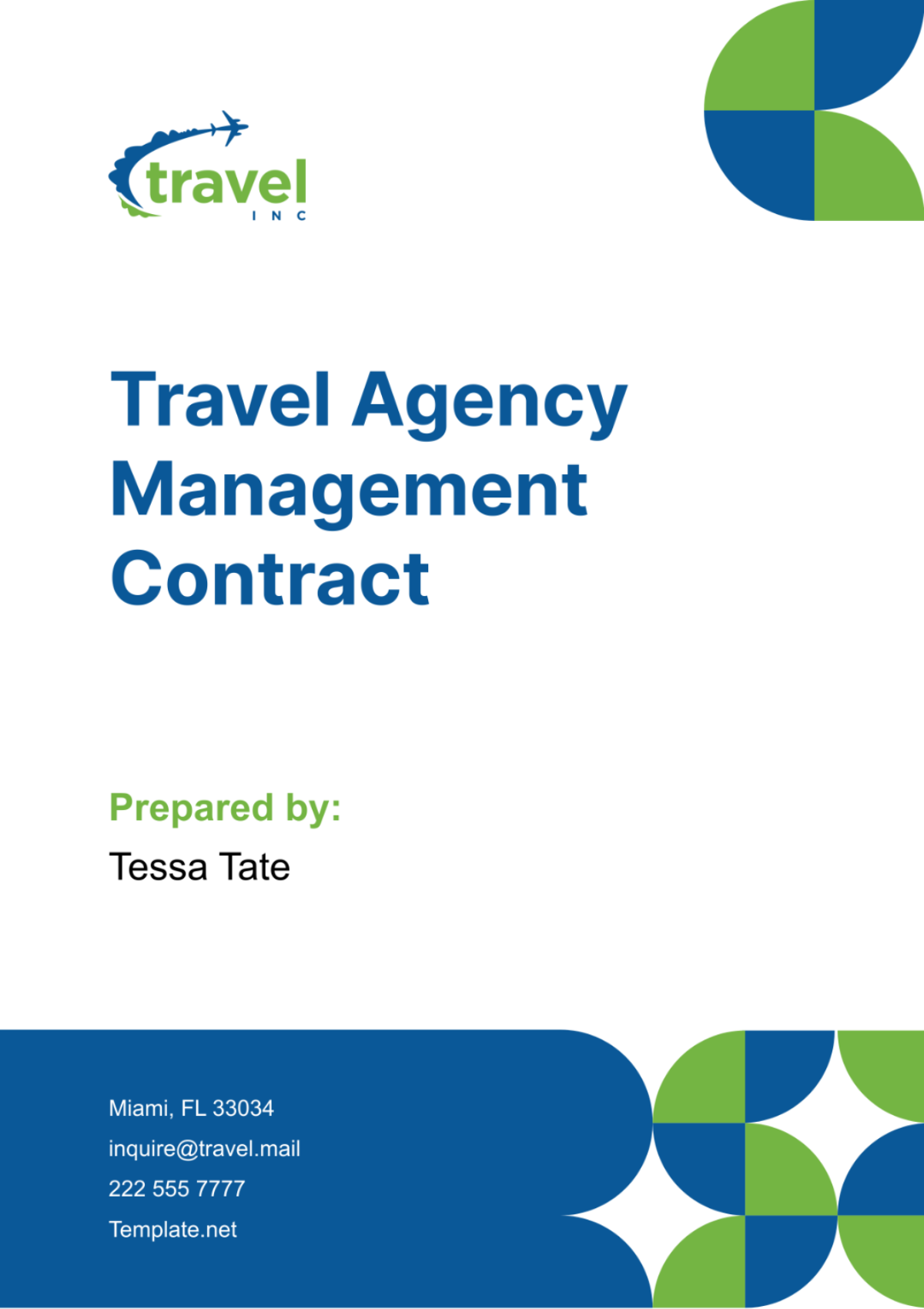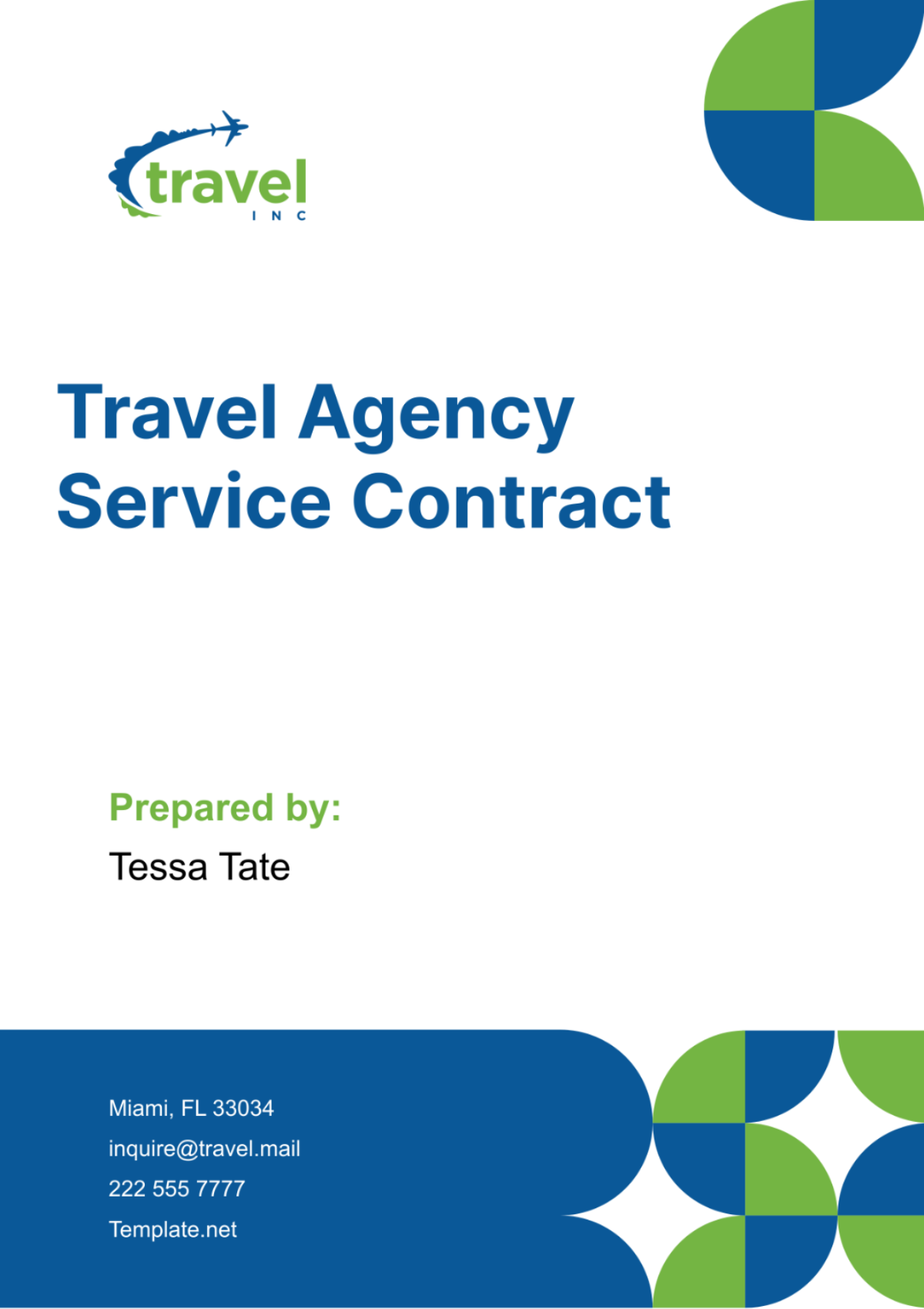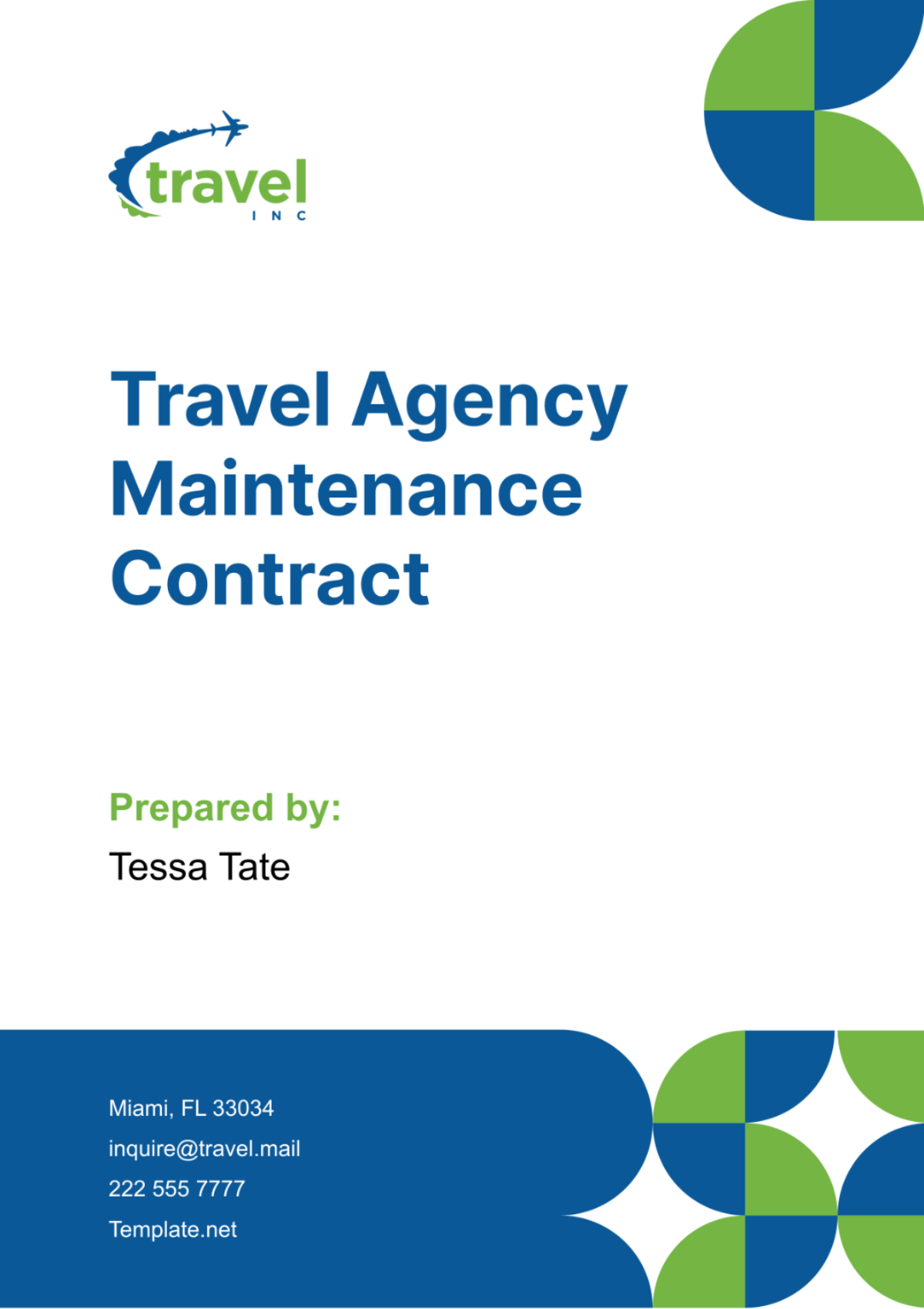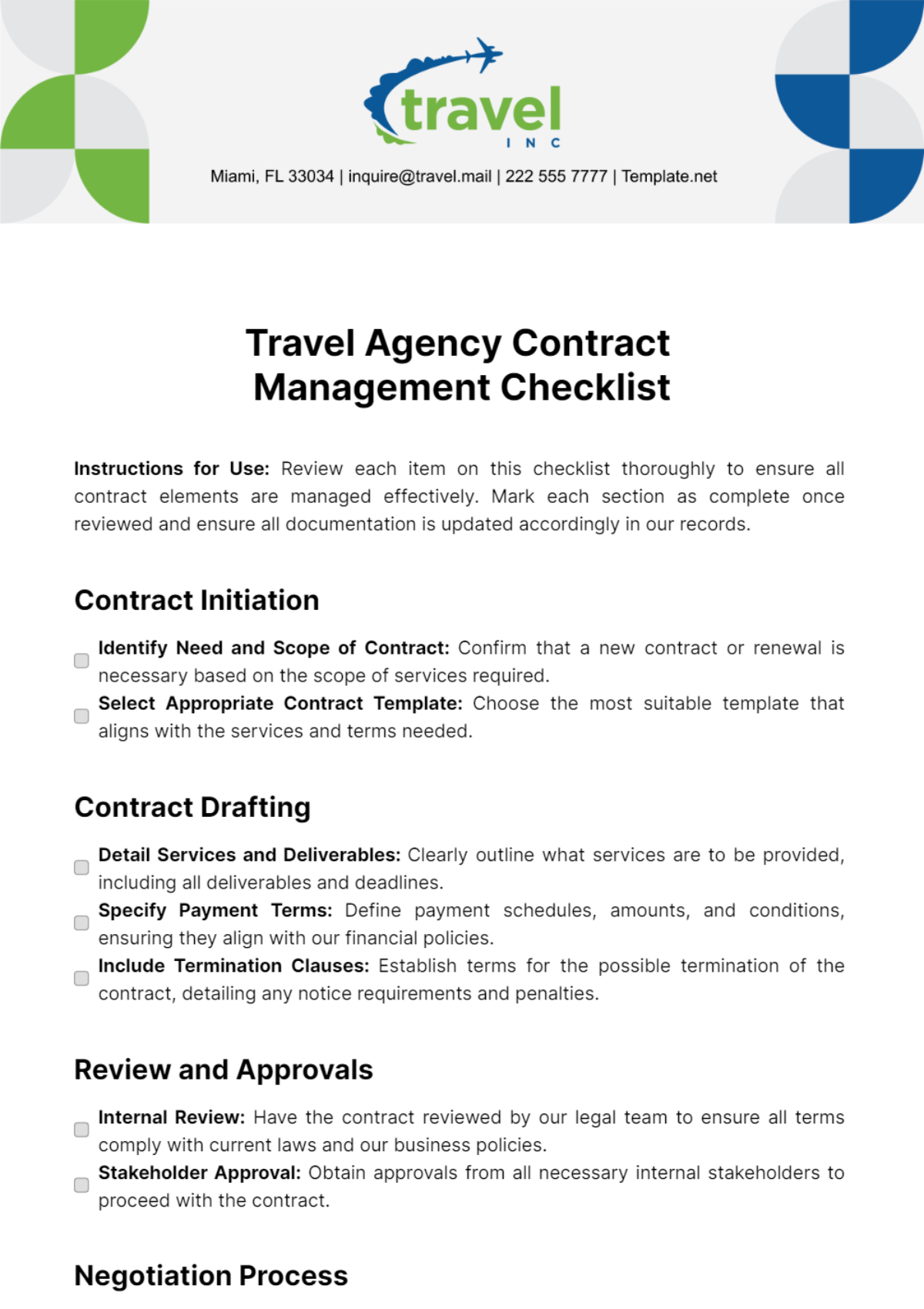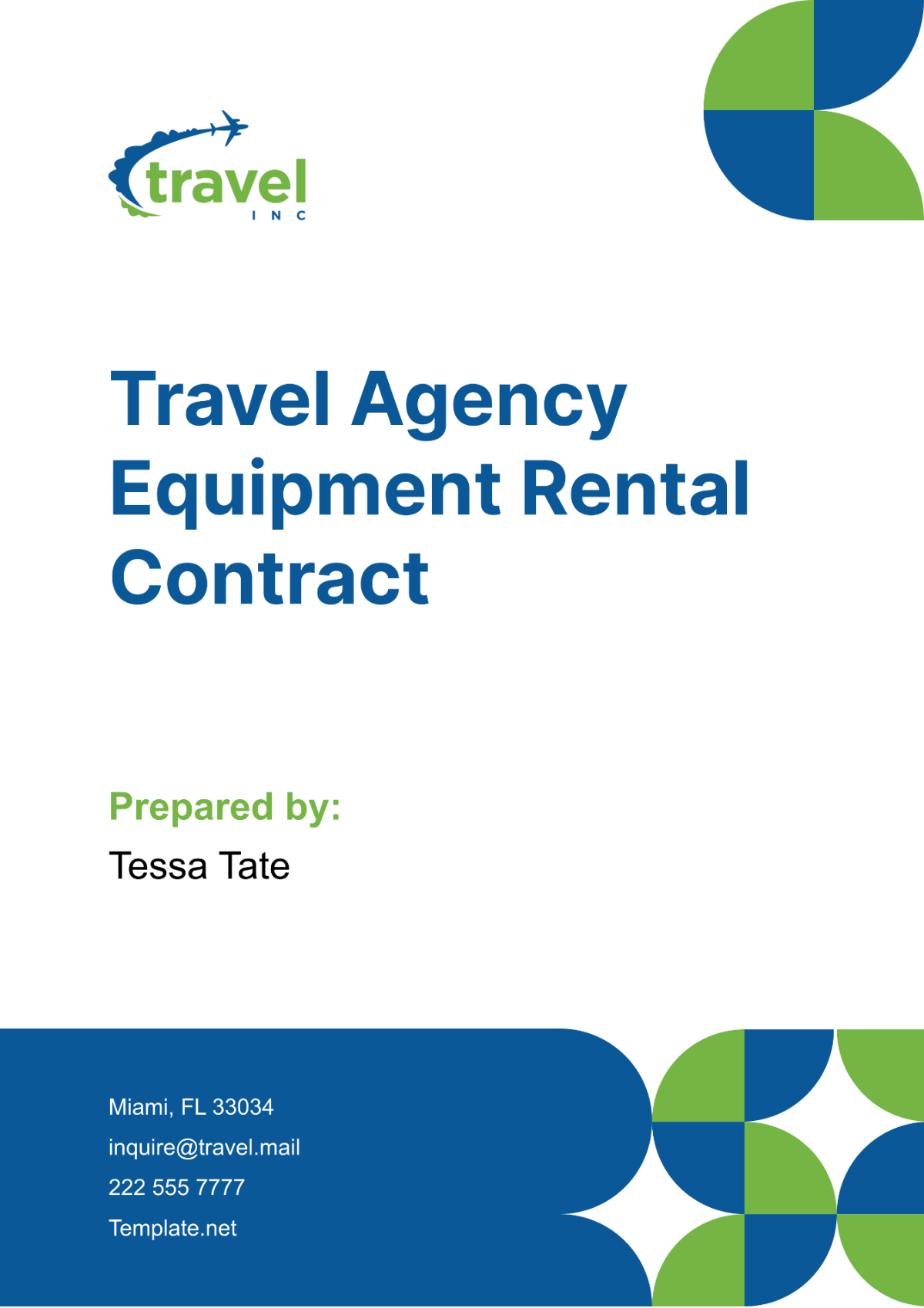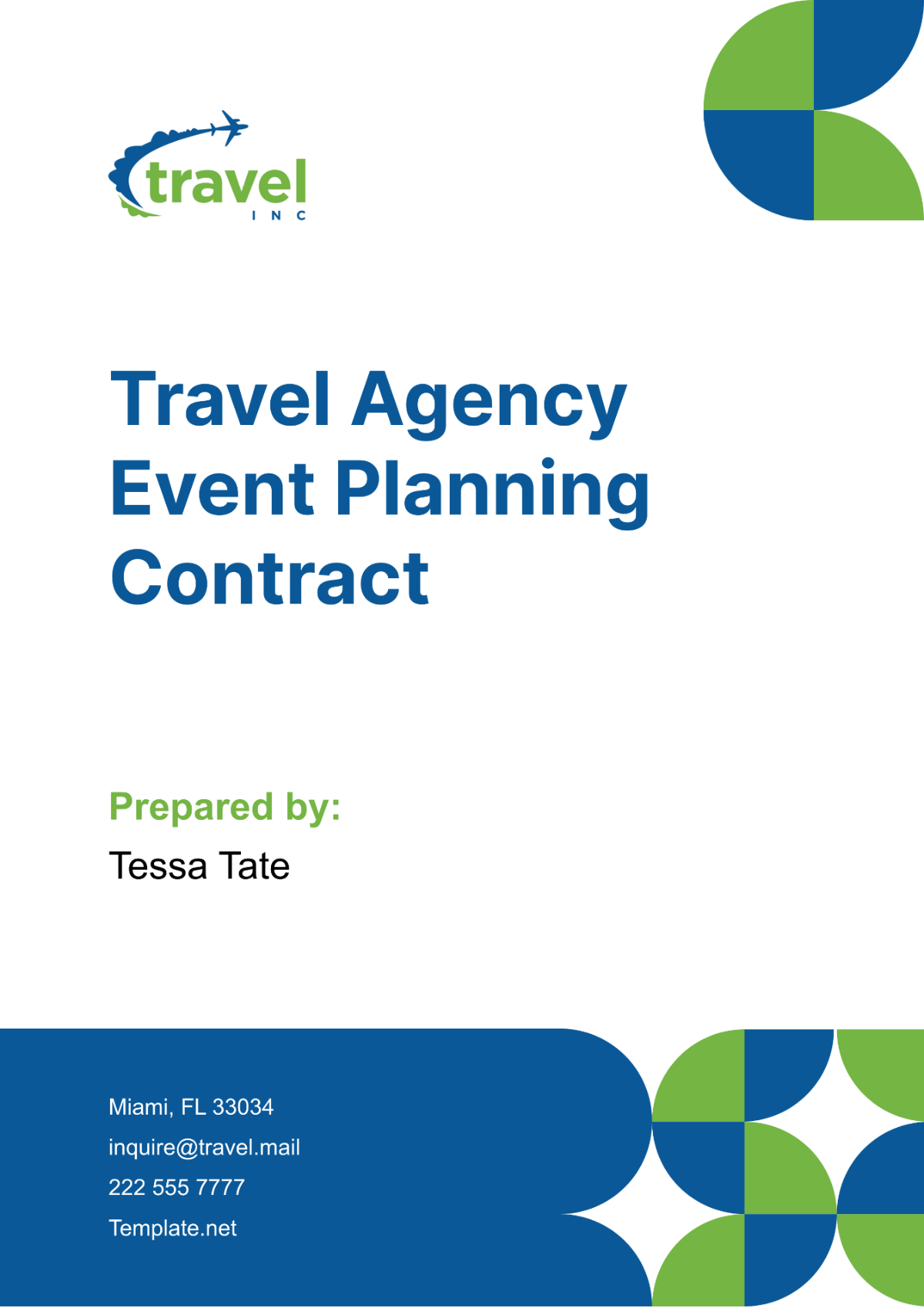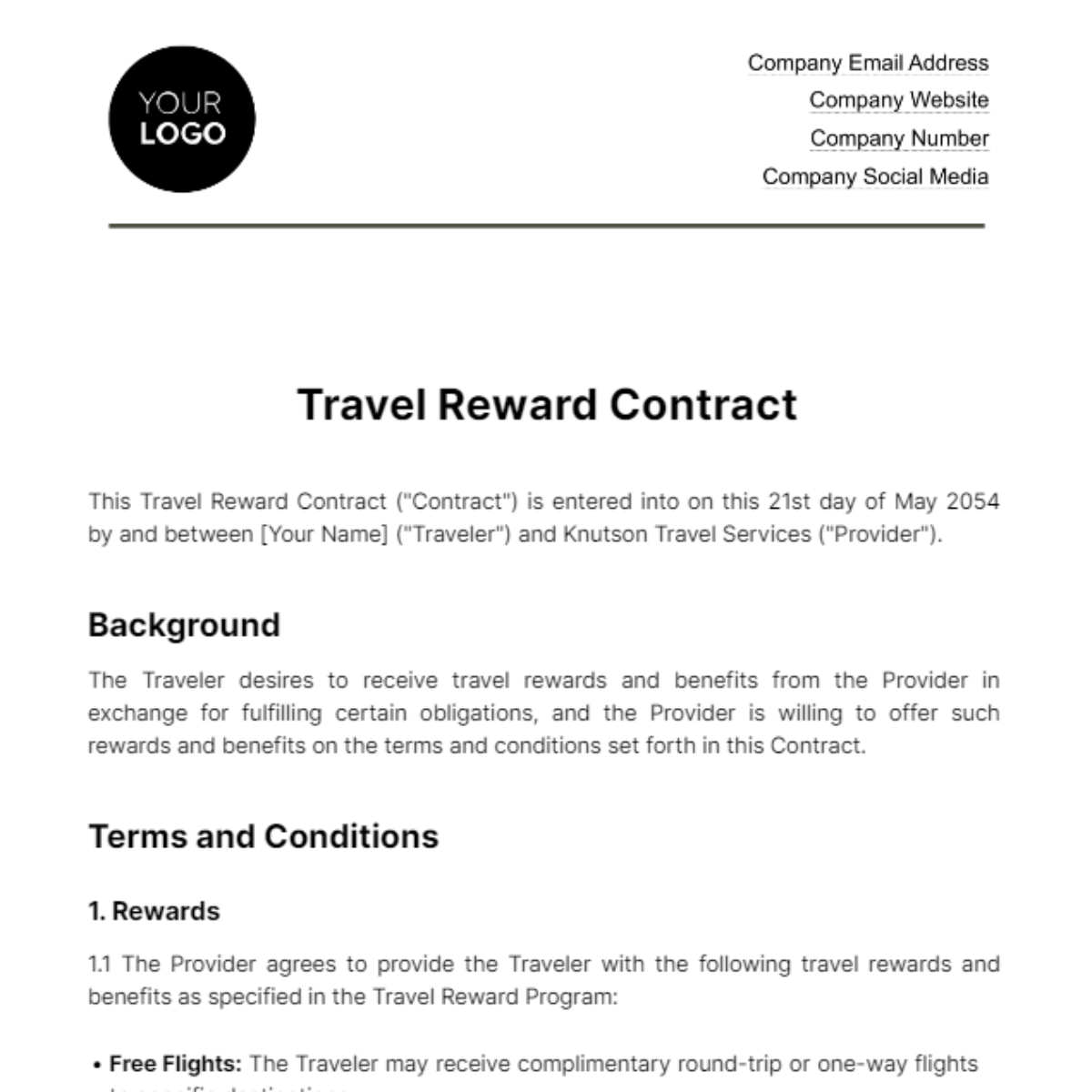Travel Agency No Harm Contract
I. The Parties
This No Harm Contract (“Contract”) is made and entered into on [Month Day, Year] ("Effective Date"), by and between [Your Company Name] ("Agency") with a principal place of business at [Your Company Address], and [Client's Name] ("Client") with a principal place of business at [Client's Address] each a ("Party") and collectively the ("Parties").
WHEREAS, the Agency is engaged in the business of providing comprehensive travel services, including but not limited to, booking flights, accommodations, and experiences;
WHEREAS, the Client desires to engage the Agency to provide such travel services under the terms and conditions set forth in this Contract;
WHEREAS, the Agency agrees to provide such services to the Client, subject to the terms and conditions of this Contract, and in compliance with all applicable laws, rules, and regulations;
NOW, THEREFORE, in consideration of the mutual covenants contained herein and for other good and valuable consideration, the receipt and sufficiency of which is hereby acknowledged, the Parties agree as follows:
II. Contract Objectives
The purpose of this Contract is to set forth the terms and conditions under which the Agency will provide travel services to the Client, ensuring the Client’s safety and well-being during the travel arrangements made by the Agency.
A. Safety Assurance
Prioritizing Safety: The Agency will prioritize the safety of the Client in all travel arrangements. This includes careful selection of transportation, accommodation, and activity providers, with a focus on their safety records and protocols.
Safety Guidelines: The Agency will provide the Client with safety guidelines and precautions related to their travel. This includes information on local customs and laws, emergency contact numbers, and health and safety tips specific to the travel destination.
Supplier Compliance: The Agency will ensure that all suppliers and service providers comply with safety standards. This includes conducting regular reviews and audits of the suppliers’ safety protocols and procedures.
B. Well-being Consideration
Well-being Focus: The Agency will consider the well-being of the Client in all travel arrangements. This includes ensuring comfortable accommodations, providing options for dietary preferences, and considering the physical demands of planned activities.
Health and Wellness Information: The Agency will provide the Client with information on health and wellness practices during travel. This includes tips on staying hydrated, getting adequate rest, and maintaining a balanced diet while traveling.
Supplier Standards: The Agency will ensure that all suppliers and service providers consider the well-being of the Client. This includes checking that accommodations are clean and comfortable, and that activity providers have procedures in place to ensure the comfort and well-being of participants.
C. Quality of Service
Service Excellence: The Agency will strive to provide high-quality travel services to the Client. This includes offering a wide range of travel options, providing timely and accurate information, and responding promptly to the Client’s inquiries and concerns.
Feedback and Improvement: The Agency will regularly review and improve its services based on feedback from the Client. This includes conducting surveys after the travel experience to gather the Client’s feedback and using this feedback to improve future services.
Supplier Quality: The Agency will ensure that all suppliers and service providers maintain a high standard of service. This includes checking the suppliers’ customer reviews and ratings, and ensuring they meet the Agency’s quality standards.
III. Services Provided
A. Comprehensive Travel Arrangements
Transportation: The Agency will arrange for all necessary transportation, ensuring the Client’s journey is smooth and hassle-free. This includes booking flights with reputable airlines, arranging train tickets where necessary, organizing bus travel for shorter distances, or securing car rentals for the Client’s convenience and comfort.
Accommodation: The Agency will book accommodations that suit the Client’s preferences and budget. This involves researching and selecting hotels, resorts, or other lodging options that offer quality services and adhere to high standards of cleanliness and customer service.
Activities: The Agency will organize activities and experiences that align with the Client’s interests and travel goals. This includes researching and booking tours, excursions, and other experiences, ensuring they are provided by reputable and reliable operators.
B. Reputable Suppliers
Selection Process: The Agency will select suppliers based on their reputation for quality, reliability, and value. This involves a thorough vetting process, including checking reviews and ratings, to ensure that the suppliers can deliver the quality of service that the Client expects.
Regular Review: The Agency will regularly review the performance of suppliers. This includes monitoring feedback from Clients and staying updated on any changes in the suppliers’ offerings or service quality. The Agency is committed to maintaining a network of high-quality suppliers.
Client Feedback: The Agency values the feedback of Clients and will consider it in its assessment of suppliers. Client satisfaction is a key indicator of supplier performance, and the Agency will use this feedback to make informed decisions about continuing or terminating relationships with suppliers.
C. Customized Itinerary
Personalization: The Agency will work closely with the Client to develop a personalized itinerary that reflects the Client’s travel preferences and goals. This involves understanding the Client’s interests, needs, and budget, and using this information to create an itinerary that provides a fulfilling and enjoyable travel experience.
Flexibility: The Agency understands that travel plans can change, and will provide options and alternatives within the itinerary to accommodate these changes. This includes having contingency plans for unforeseen circumstances such as weather disruptions, and being able to make last-minute adjustments to the itinerary if needed.
Communication: Clear and timely communication is key to ensuring a smooth travel experience. The Agency will keep the Client informed about the itinerary and any changes or updates. The Agency will also be available to answer any questions or concerns that the Client may have before, during, or after the travel.
IV. Client’s Acknowledgment of Risk
A. Inherent Risks of Travel
Understanding of Risks: The Client acknowledges that travel, by its nature, involves inherently dangerous activities. These risks can include, but are not limited to, accidents during transportation, illness or injury in remote locations, or unexpected changes in weather conditions.
Acceptance of Risks: By agreeing to this Contract, the Client confirms their understanding of these risks and accepts the inherent dangers associated with travel. The Client understands that these risks are a part of the travel experience and accepts them as a condition of participation.
Preparation for Risks: The Client agrees to take all necessary precautions to mitigate these risks, including following safety instructions, maintaining good health practices, and obtaining appropriate travel insurance.
B. Agency’s Role and Limitations
Risk Mitigation: The Agency will take all reasonable steps to mitigate the risks associated with travel. This includes selecting reputable suppliers, providing safety guidelines, and offering support and assistance throughout the trip.
Limitations of Responsibility: However, the Agency cannot guarantee complete safety during travel. The Agency shall not be held liable for any harm arising from these risks unless it is the result of gross negligence or willful misconduct by the Agency.
Client’s Responsibility: The Client understands that they also have a role to play in their own safety. This includes following safety instructions, making informed decisions, and taking responsibility for their actions.
C. Release of Liability
Release and Waiver: The Client agrees to release and hold harmless the Agency from any claims associated with the inherent risks of travel. This release extends to all employees, agents, and representatives of the Agency.
Understanding of Release: The Client understands that this release of liability means they are giving up certain legal rights, including the right to sue the Agency for damages in the event of injury, illness, or death.
Voluntary Agreement: The Client confirms that they are agreeing to this release of liability voluntarily and with full understanding of its implications.
V. Client Responsibilities
A. Compliance with Laws and Regulations
Local Laws: The Client agrees to abide by all local laws and regulations of the destinations they visit. This includes respecting cultural norms, customs, and etiquette to ensure a harmonious travel experience.
Travel Documentation: The Client is responsible for obtaining and carrying all necessary travel documents, including passports, visas, and vaccination certificates. The Client should ensure that these documents are valid and up-to-date.
B. Safety Instructions
Following Guidelines: The Client agrees to follow safety instructions provided by the Agency or suppliers. This includes adhering to guidelines during activities, excursions, and use of transportation services.
Risk Awareness: The Client should be aware of their surroundings and take necessary precautions to ensure their safety and the safety of others.
C. Health and Fitness
Medical Conditions: The Client agrees to inform the Agency of any medical or physical conditions that may affect their ability to travel. This includes allergies, dietary restrictions, and physical disabilities.
Fitness Level: The Client should assess their fitness level for the planned activities and inform the Agency if they have any concerns.
VI. Liability Limitations
A. Limitation of Direct Damages
Scope of Liability: The Agency’s liability for any harm arising out of the Client’s travel arrangements shall be limited to direct damages proven by the Client. This means that the Agency is responsible only for those damages that are a direct result of its actions or omissions.
Proof of Damages: The Client must provide clear and convincing evidence of the damages they have suffered. This could include receipts for additional expenses incurred, medical reports in case of injury, or other relevant documentation.
Exclusion of Liability: The Agency is not responsible for any damages that the Client could have avoided by taking reasonable steps. This includes damages resulting from the Client’s failure to follow safety instructions, to secure their personal belongings, or to obtain appropriate travel insurance.
B. Exclusion of Indirect Damages
Definition of Indirect Damages: Indirect damages refer to any loss that is a secondary consequence of a harmful event, such as loss of enjoyment, stress and inconvenience, or loss of earnings.
Agency’s Position: Under no circumstances shall the Agency be liable for indirect, incidental, or consequential damages arising from this Contract. This means that the Agency is not responsible for any losses that are not a direct and immediate result of its actions or omissions.
Client’s Understanding: The Client understands and accepts that they will not be able to claim compensation from the Agency for these types of losses.
C. Maximum Liability
Cap on Damages: The total liability of the Agency for all claims arising out of this Contract, whether in contract, tort, or otherwise, shall not exceed the total amount of fees paid by the Client to the Agency under this Contract. This means that the most the Client can recover from the Agency in any legal claim is the amount they have paid for the Agency’s services.
Rationale for Cap: This cap on damages is intended to ensure that the potential financial risk to the Agency is proportionate to the revenue it receives from the Contract.
Client’s Agreement: The Client agrees to this cap on damages and acknowledges that it is a reasonable and necessary term of this Contract.
VII. Indemnification
A. Client’s Indemnity Obligations
Indemnity for Negligence: The Client agrees to indemnify and hold the Agency harmless from any claims, damages, losses, or expenses, including attorney’s fees, resulting from the Client’s negligence. This means that if the Client’s negligent actions cause harm to a third party, and that third party makes a claim against the Agency, the Client will cover the Agency’s costs and any amounts it is required to pay.
Indemnity for Misrepresentation: The Client also agrees to indemnify the Agency for any claims arising from the Client’s misrepresentation. This includes any false or misleading information provided by the Client to the Agency or to third parties in connection with the travel services.
Indemnity for Misconduct: The Client will indemnify the Agency for any claims arising from the Client’s misconduct. This includes any actions by the Client that are illegal, violate the rights of others, or breach the terms of this Contract.
B. Procedure for Indemnification
Notice of Claim: If the Agency receives a claim for which it is entitled to indemnification from the Client, it will promptly notify the Client in writing. The notice will include details of the claim and the amount of the claimed damages.
Control of Defense: The Client will have the right to control the defense and settlement of the claim, provided that the Client acts reasonably and in good faith. The Agency will have the right to participate in the defense at its own expense.
Cooperation: The Client and the Agency will cooperate fully with each other in the defense of the claim. This includes sharing information and documents and making employees available for interviews or court appearances.
C. Limitations on Indemnification
No Indemnity for Agency’s Negligence: The Client will not be required to indemnify the Agency for any claims arising from the Agency’s own negligence or willful misconduct. This includes any actions by the Agency that are illegal, violate the rights of others, or breach the terms of this Contract.
No Indemnity for Disputed Claims: The Client will not be required to indemnify the Agency for any claims that are disputed in good faith. If the claim is later resolved in favor of the claimant, the Client will then indemnify the Agency for the claim.
No Indemnity for Punitive Damages: The Client will not be required to indemnify the Agency for any punitive damages awarded against the Agency, unless these damages are awarded as a result of the Client’s negligence, misrepresentation, or misconduct.
VIII. Insurance
A. Importance of Travel Insurance
Risk Management: Travel insurance is a crucial part of risk management for any travel. It provides coverage for unforeseen circumstances that could occur before or during the trip, such as trip cancellation, medical emergencies, or loss of personal belongings.
Financial Protection: Travel insurance can provide financial protection against significant expenses that could arise due to these unforeseen circumstances. Without insurance, the Client could be personally liable for these costs.
Peace of Mind: Having travel insurance can give the Client peace of mind during their trip, knowing that they are covered in case of any unexpected events.
B. Client’s Responsibility
Obtaining Insurance: The Client is strongly advised to obtain personal travel insurance. It is the Client’s responsibility to research and choose an insurance policy that best fits their needs and covers the activities they plan to engage in during their trip.
Understanding the Policy: The Client should carefully read and understand the terms and conditions of their insurance policy, including what is covered, what is not covered, and how to make a claim.
Disclosure of Information: The Client should provide accurate and complete information to the insurance provider. Failure to do so could result in the denial of a claim.
C. Agency’s Assistance
Insurance Advice: While the Agency can provide general advice and information about travel insurance, it is not licensed to sell insurance or provide specific recommendations. The Client should consult with a licensed insurance professional for advice tailored to their situation.
Insurance Providers: The Agency can provide assistance in obtaining travel insurance through reputable insurance providers. However, the Agency does not endorse any specific insurance provider and the choice lies solely with the Client.
Claim Assistance: If the Client needs to make a claim on their travel insurance during their trip, the Agency can provide assistance in contacting the insurance provider and understanding the claim process.
IX. Term and Termination
A. Contract Term
Effective Date: This Contract is effective as of the date of signing and shall continue until completion of all travel arrangements covered by this Contract. The start of the Contract is marked by the Effective Date, which is the date when both Parties sign the Contract.
Completion of Services: The Contract term extends until the Agency has completed all the services agreed upon in the Contract. This includes all travel arrangements, support during the trip, and any post-trip services agreed upon.
Extension of Contract: If the Client wishes to extend the travel arrangements or add additional services, the Contract term can be extended by mutual agreement of the Parties.
B. Termination by Either Party
Notice Requirement: Either Party may terminate this Contract with written notice at least [30] days prior to the intended termination date. This allows both Parties sufficient time to wrap up any pending matters and make alternative arrangements if necessary.
Effect of Termination: Upon termination, the Agency will cease all services and the Client will pay for all services rendered up to the date of termination.
Survival of Terms: Certain terms of this Contract, such as confidentiality, indemnification, and dispute resolution, will survive the termination of the Contract and continue to bind the Parties.
C. Termination for Cause
Breach of Contract: If either Party breaches any term of this Contract, the other Party may terminate the Contract immediately upon written notice. The notice should specify the nature of the breach and the terminating Party’s intention to end the Contract.
Remedy Period: Upon receiving a notice of breach, the breaching Party will have a specified period [14] days to remedy the breach. If the breach is not remedied within this period, the Contract will terminate automatically.
Consequences of Breach: If the Contract is terminated due to a Party’s breach, the non-breaching Party may seek legal remedies, including damages for any loss suffered as a result of the breach.
X. Dispute Resolution
A. Good Faith Negotiations
Initial Resolution: In the event of a dispute arising from this Contract, the Parties agree first to seek a resolution through good faith negotiations. This means that both Parties will make a sincere and honest effort to resolve the dispute amicably before resorting to formal legal proceedings.
Communication: The Parties will communicate openly and promptly about any issues or concerns that may lead to a dispute. They will provide each other with all relevant information and will strive to understand each other’s perspectives and interests.
Timeframe: The Parties will aim to resolve any dispute through negotiations within a reasonable timeframe, within [30] days of one Party notifying the other of the dispute.
B. Mediation
Mediation Process: If the dispute cannot be resolved through negotiation, the Parties agree to participate in mediation before resorting to arbitration or litigation. Mediation is a process where a neutral third party (the mediator) helps the Parties to reach a mutually acceptable resolution.
Selection of Mediator: The Parties will jointly select a qualified mediator. If they cannot agree on a mediator, one will be appointed by the [Mediation Association].
Costs of Mediation: The costs of mediation, including the fees of the mediator, will be shared equally by the Parties.
C. Binding Arbitration
Arbitration Agreement: If the dispute cannot be resolved through mediation, the Parties agree to submit the dispute to binding arbitration under the rules of the [Arbitration Association]. This means that the decision of the arbitrator will be final and binding on both Parties.
Selection of Arbitrator: The Parties will jointly select a qualified arbitrator. If they cannot agree on an arbitrator, one will be appointed by the [Arbitration Association].
Arbitration Location: The arbitration shall take place in [State Name], and the laws of [State Name] shall govern the arbitration proceedings.
XI. Signatures
By signing below, each Party acknowledges that they have read, understood, and agreed to the terms and conditions of this Contract. Each Party confirms that they are legally authorized to enter into this Contract on behalf of their respective entity.
Agency

[Authorized Representative Name]
[Your Company Name]
Date: [Month Day, Year]
Client

[Client's Name]
Date: [Month Day, Year]
